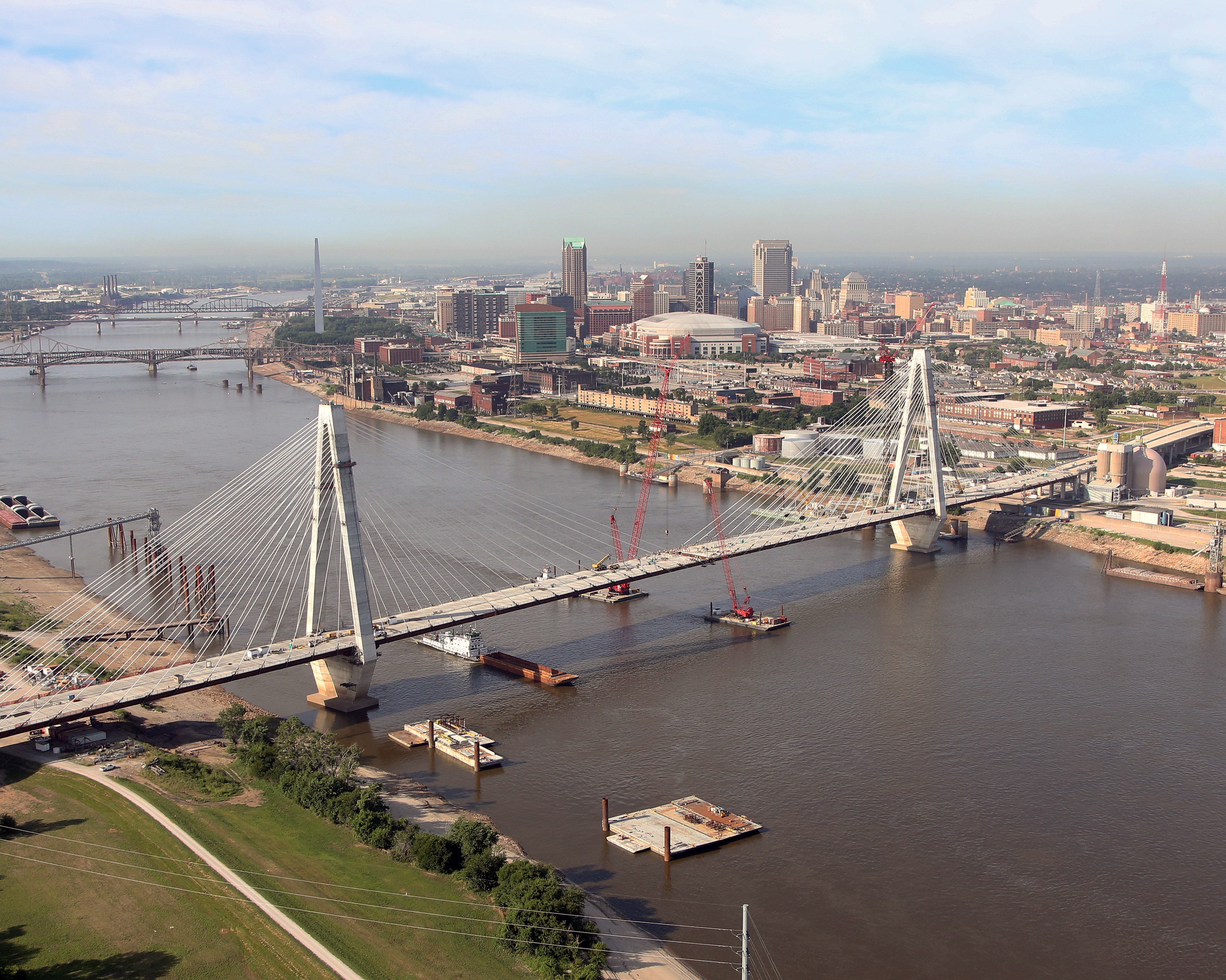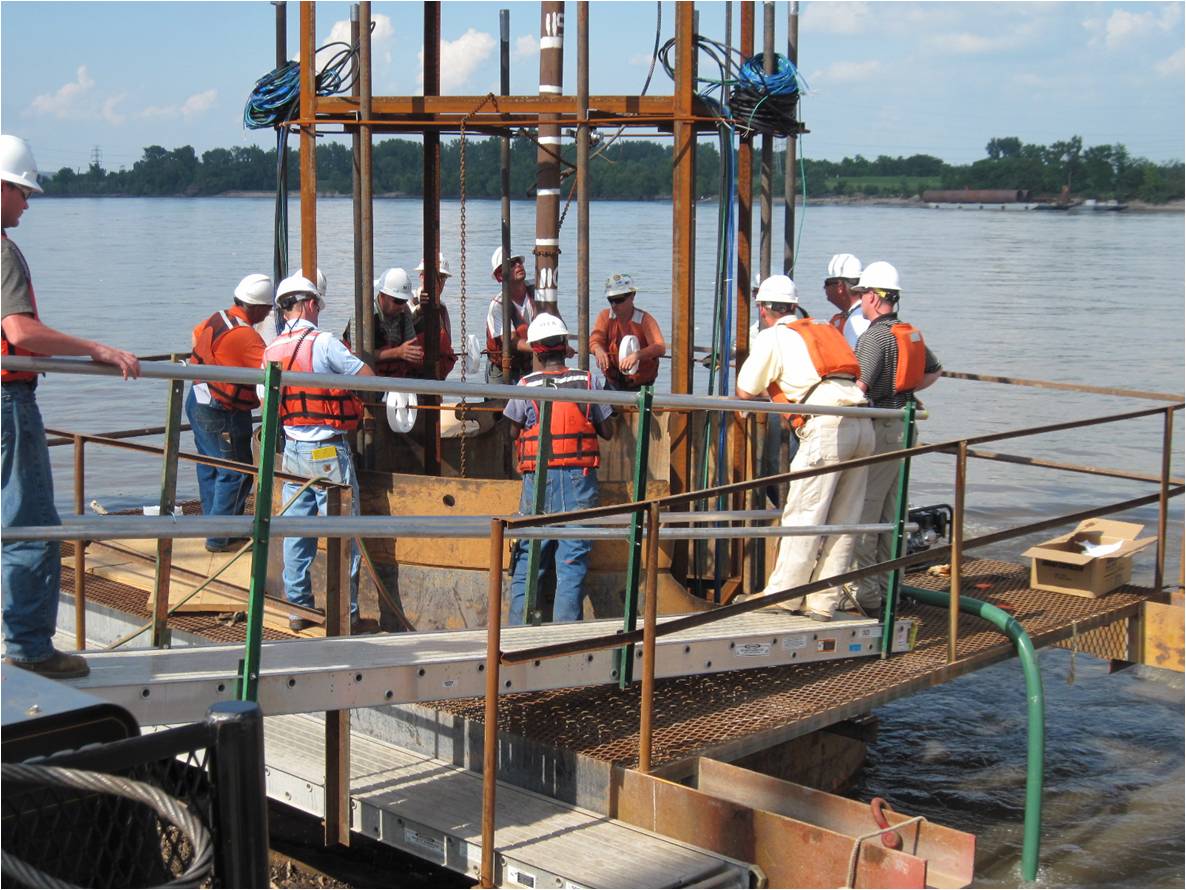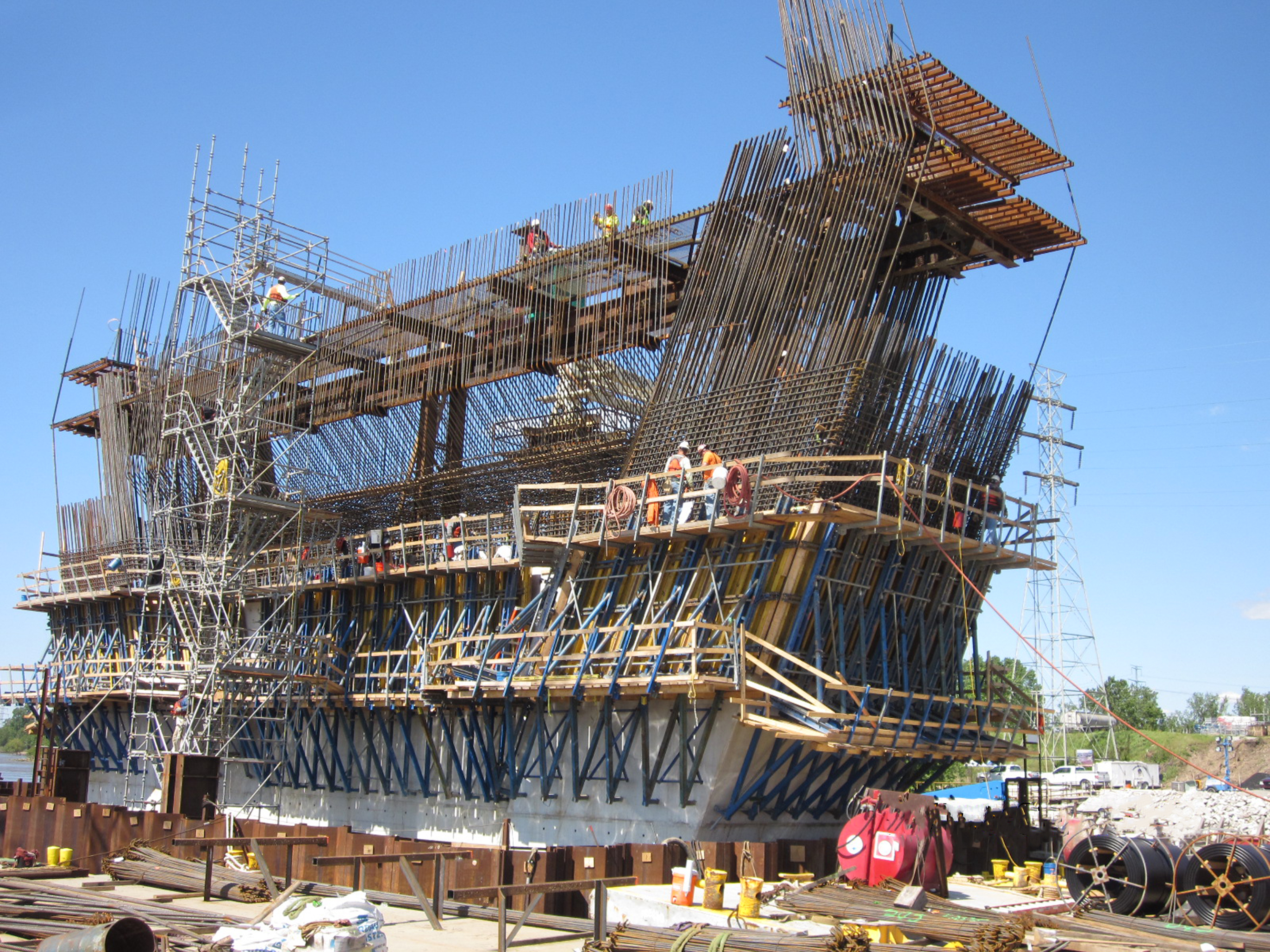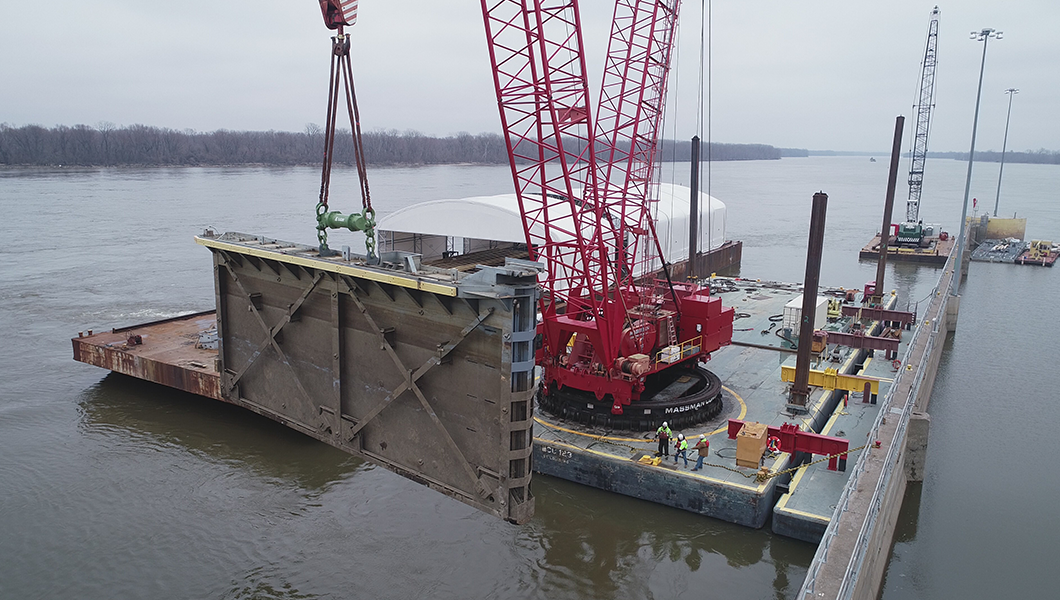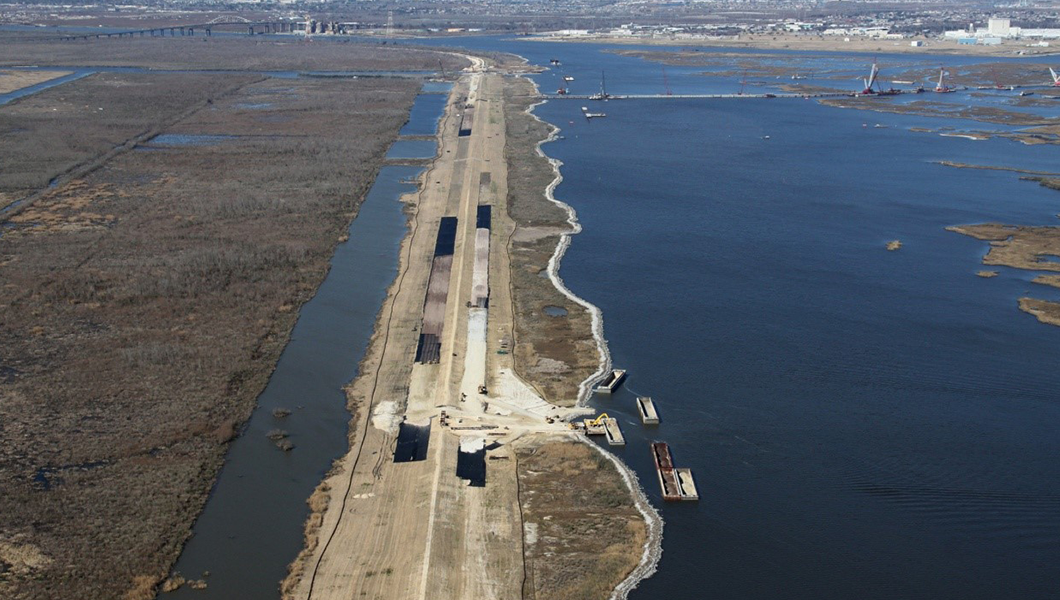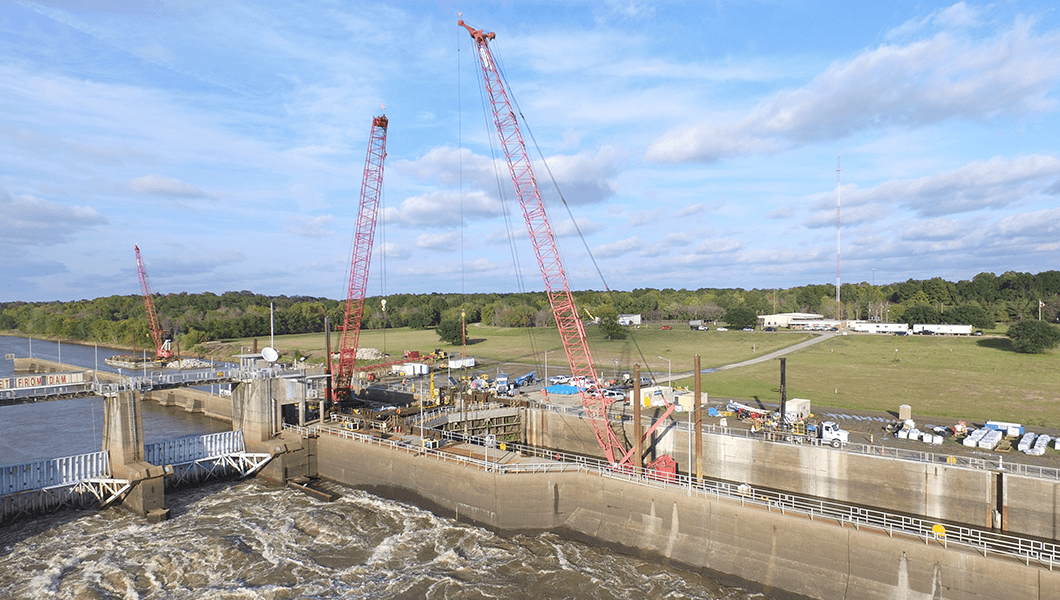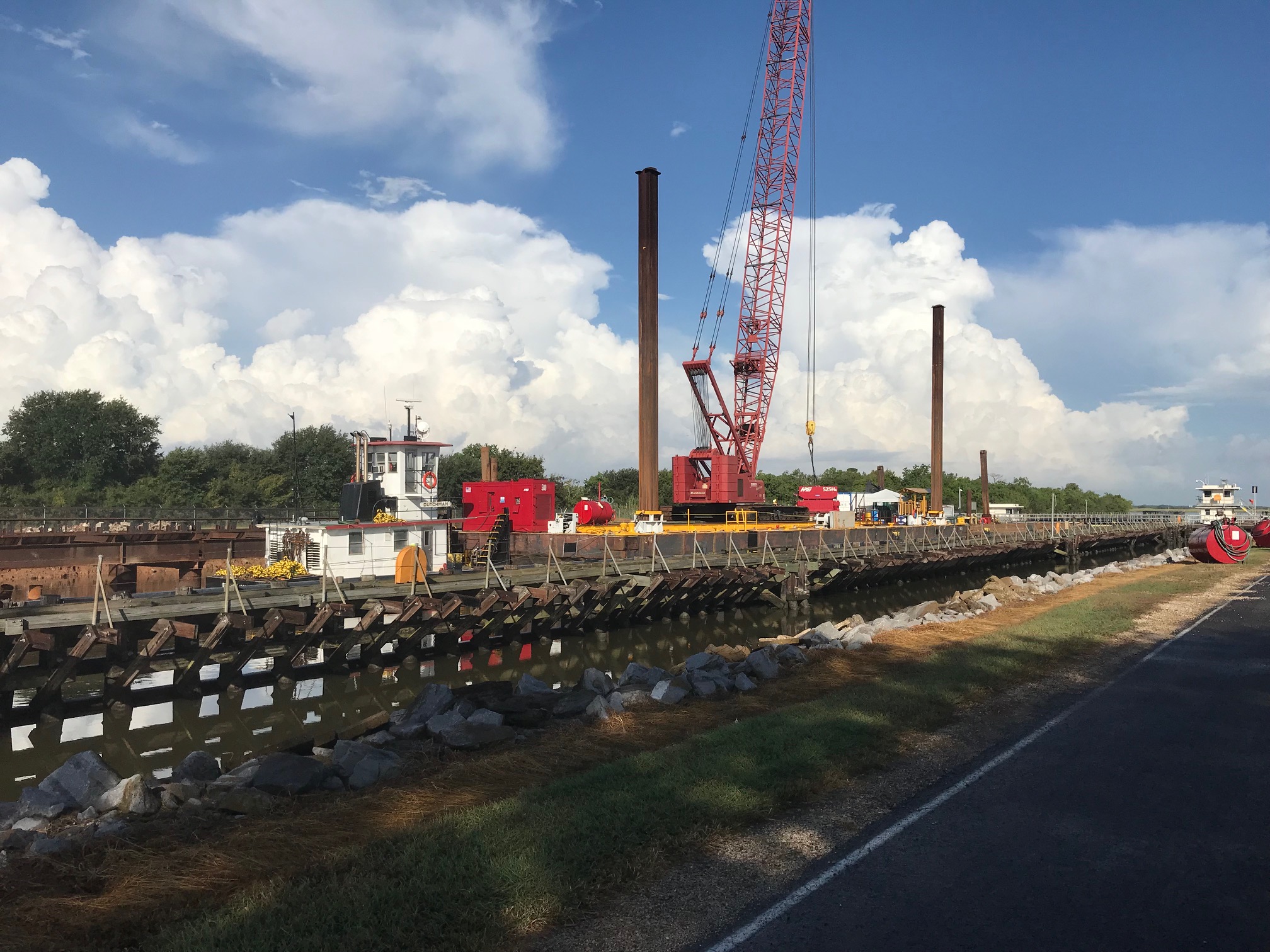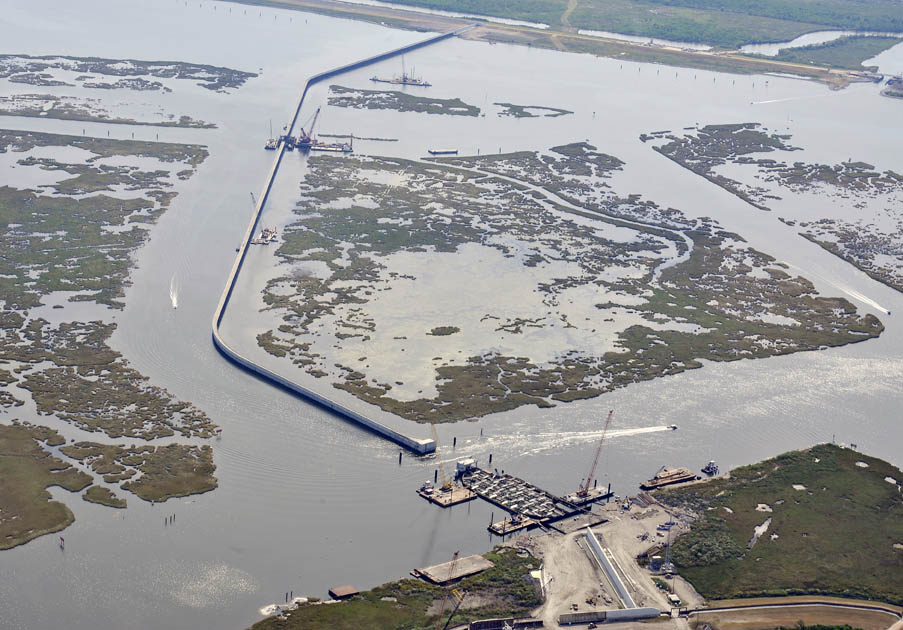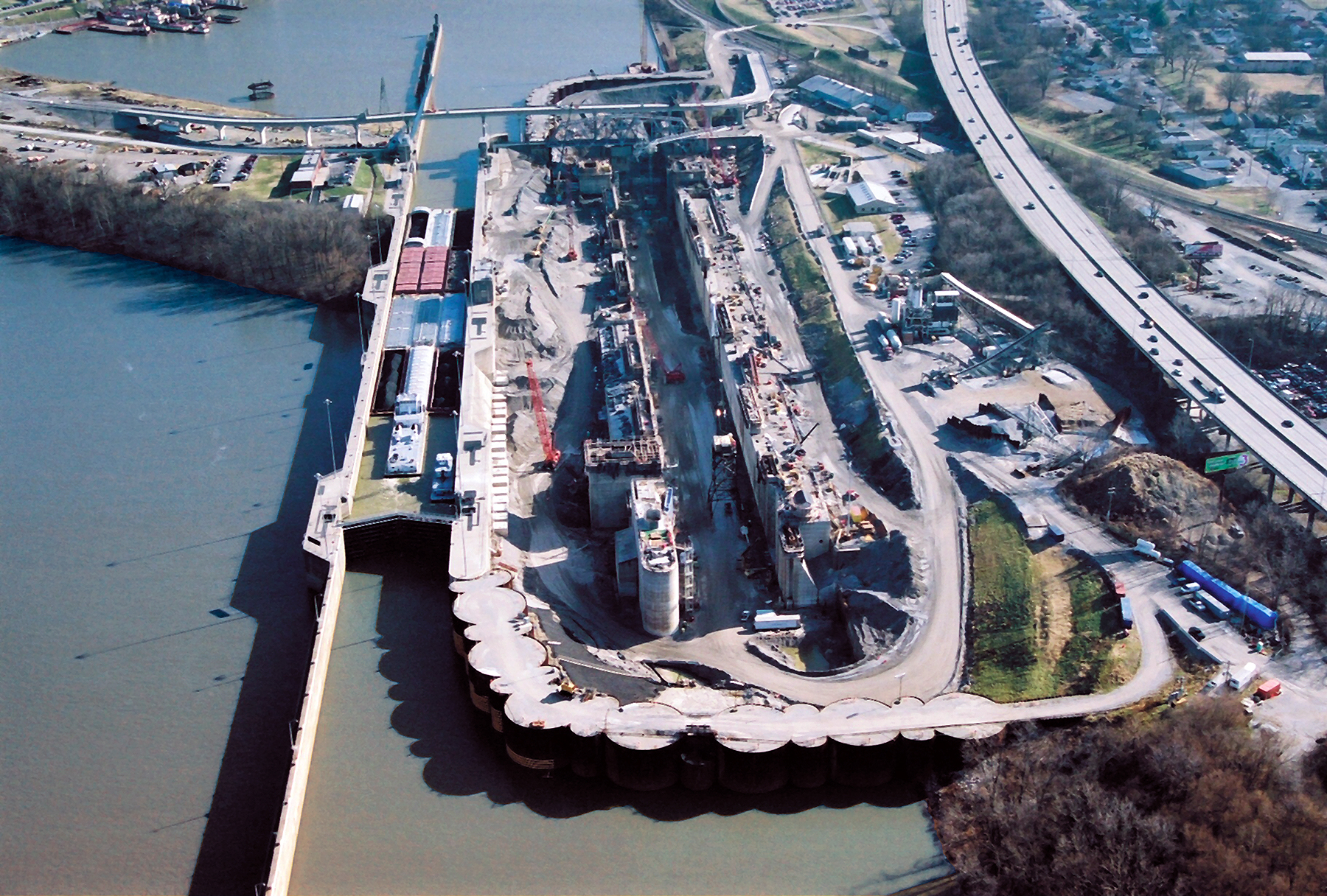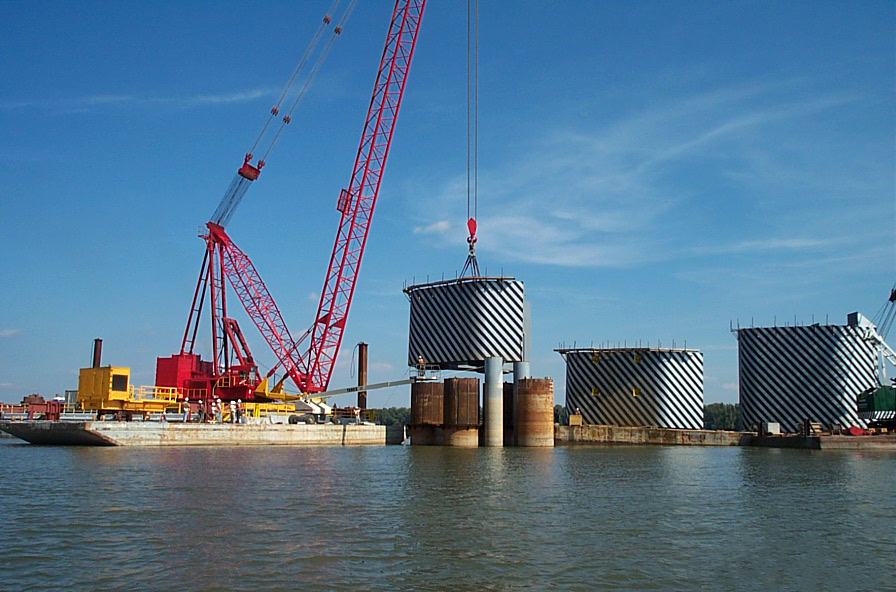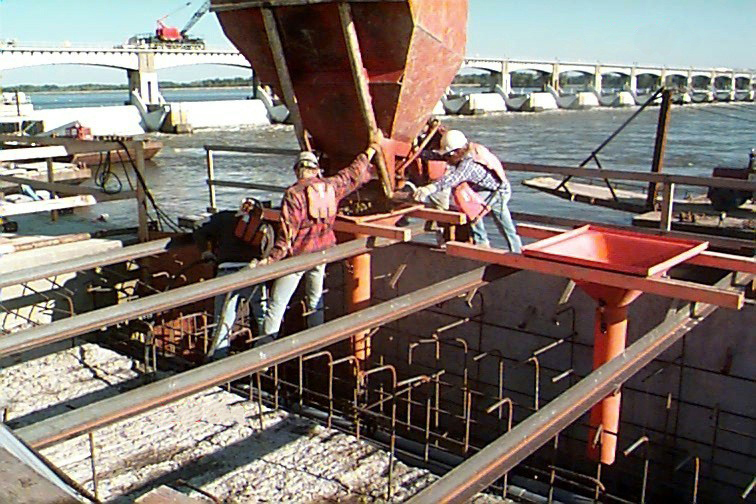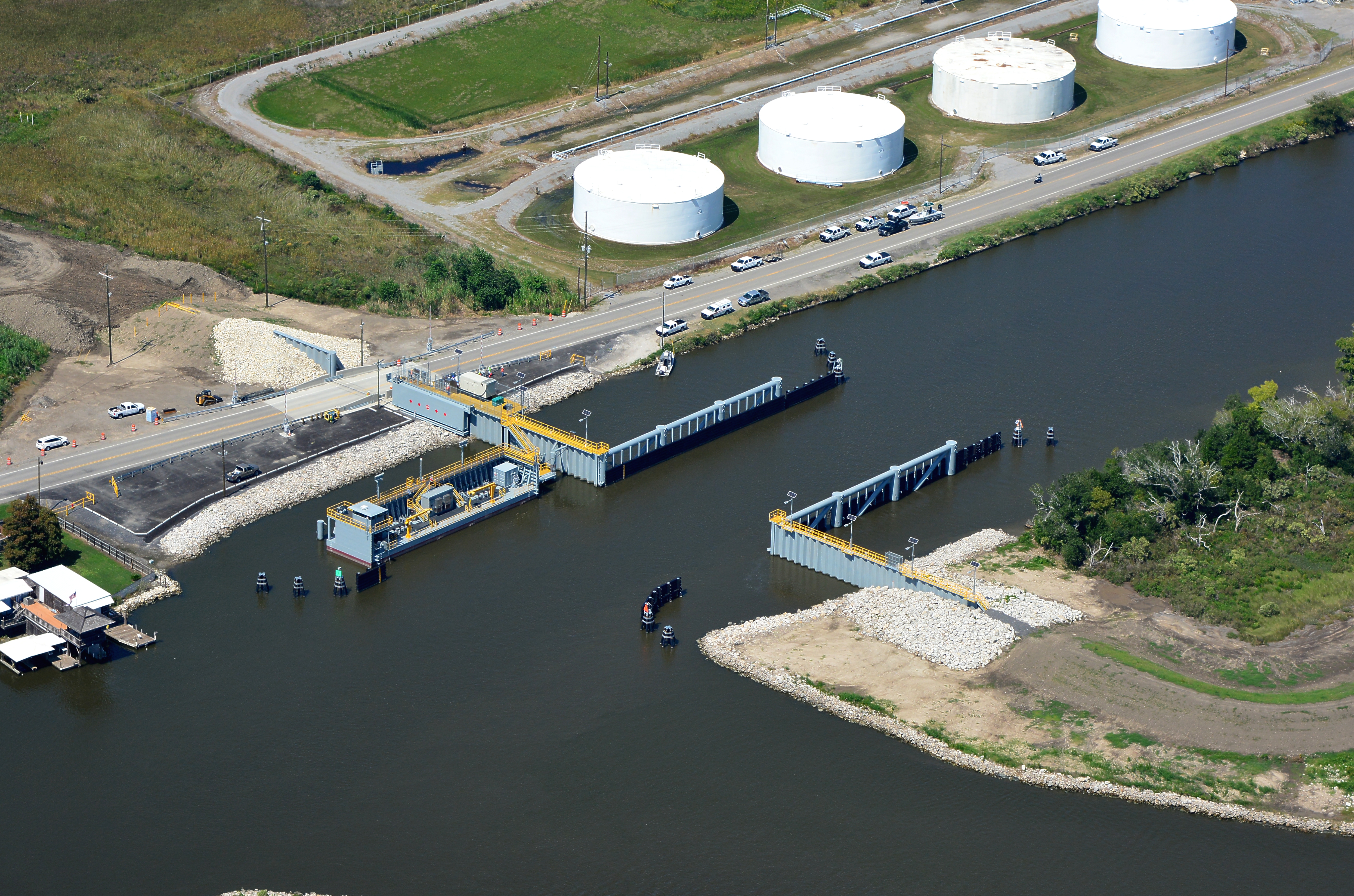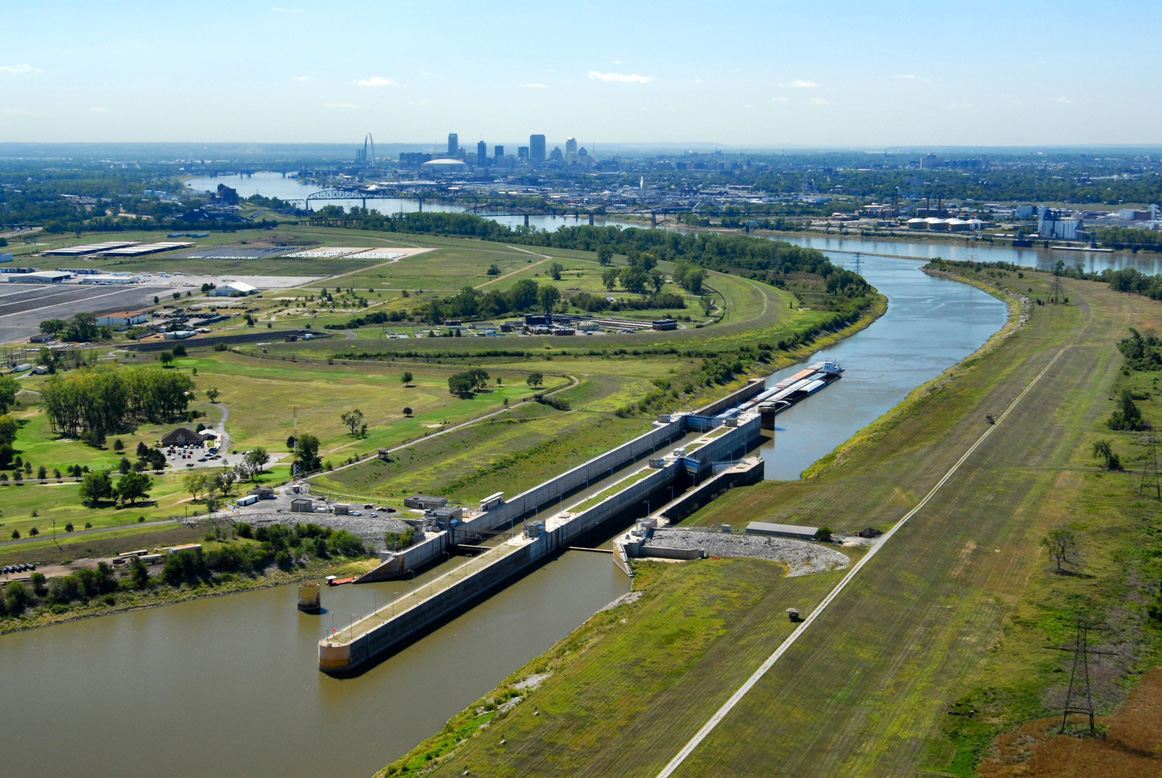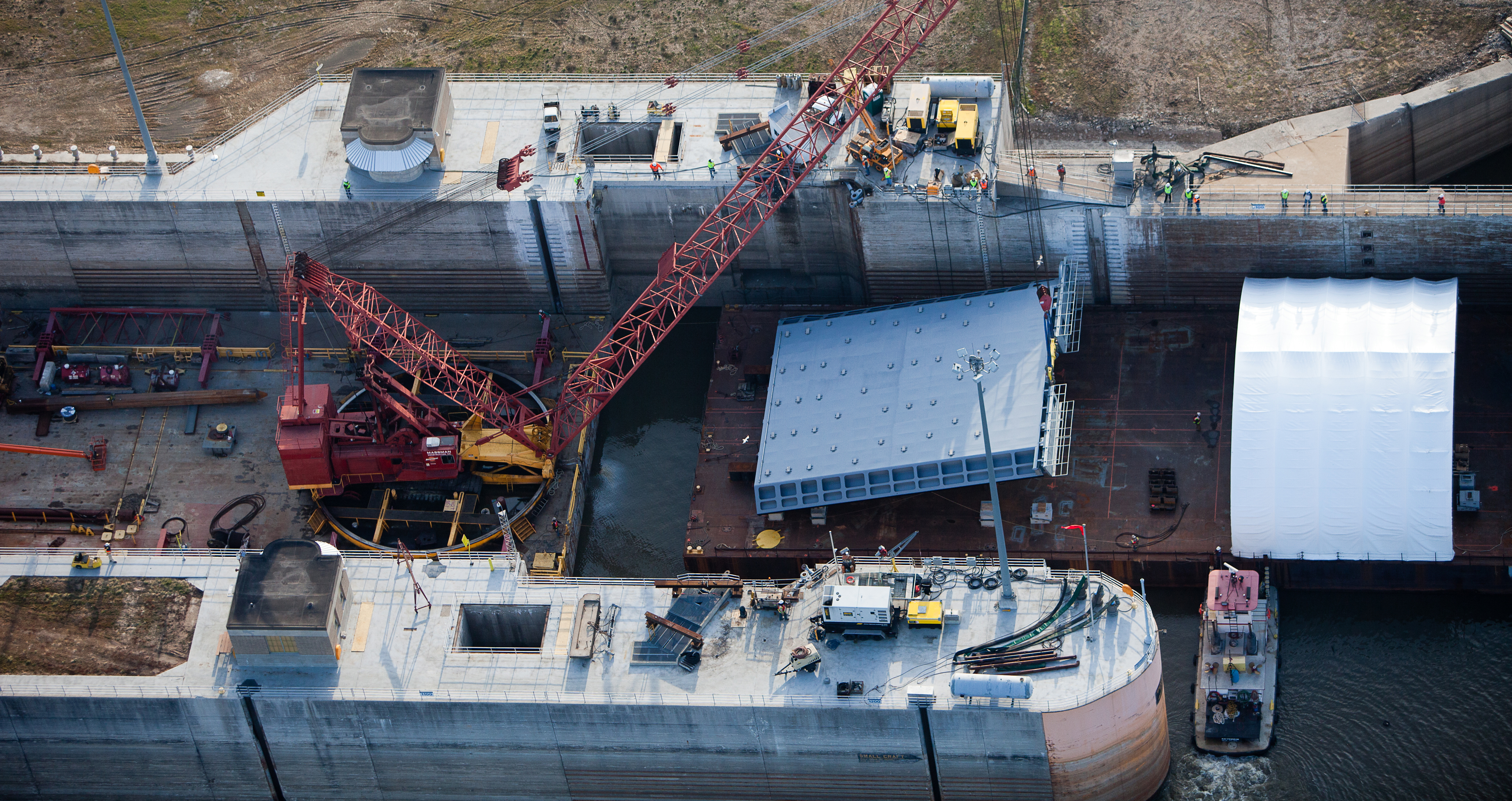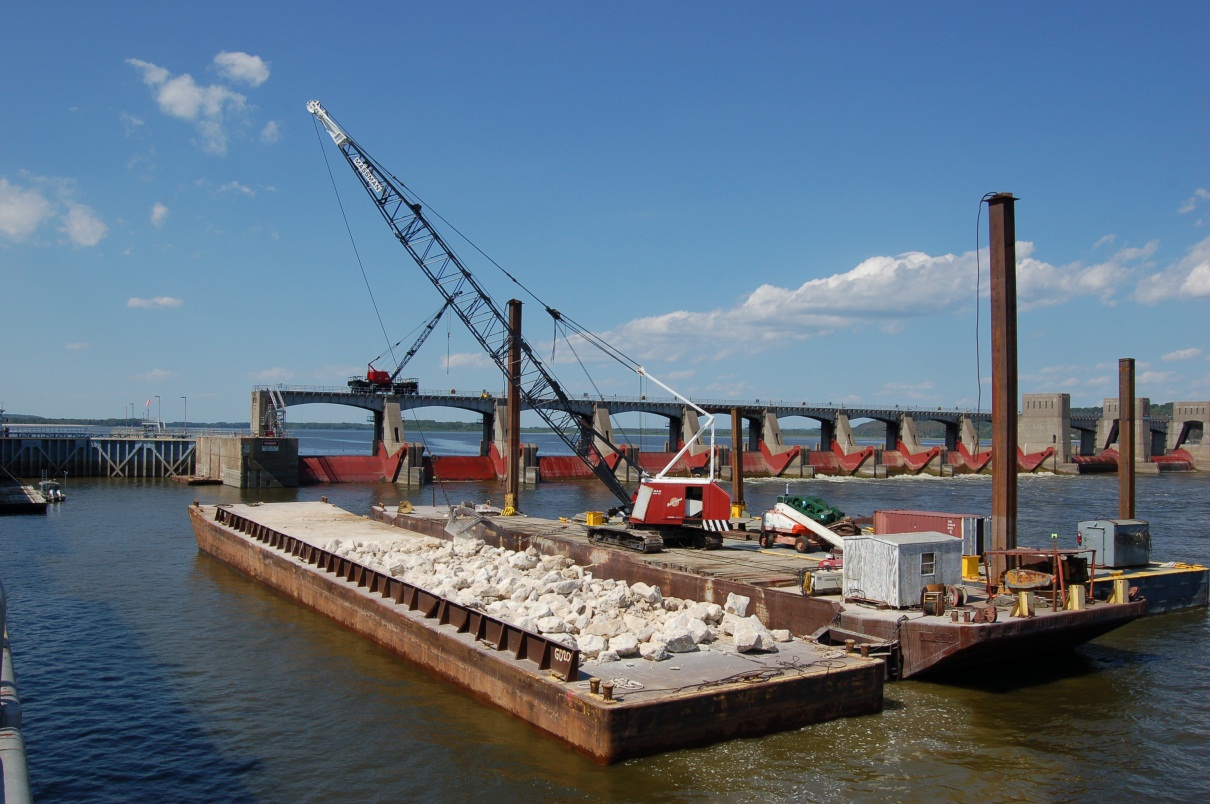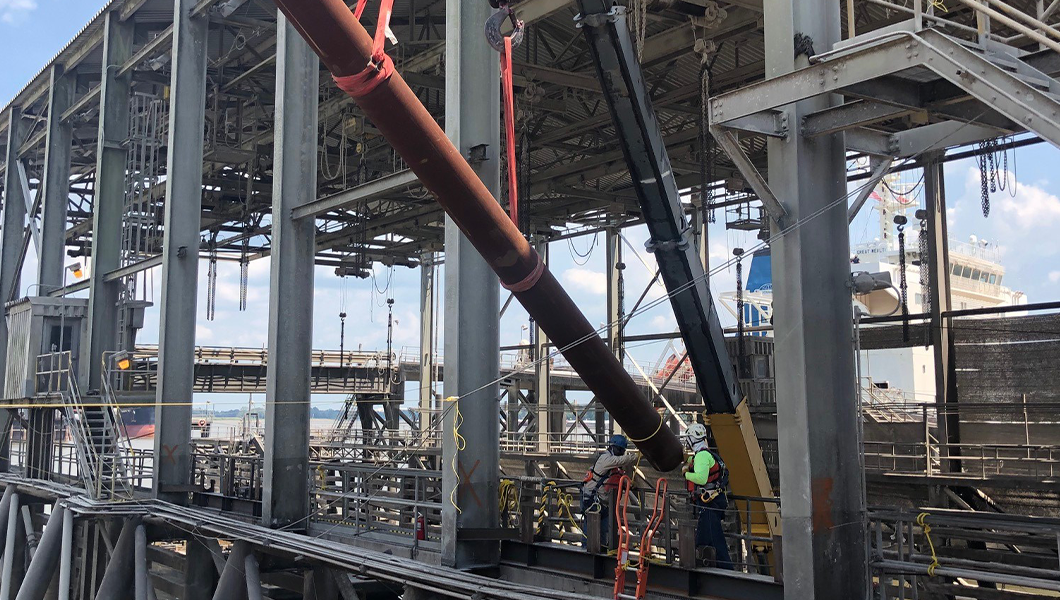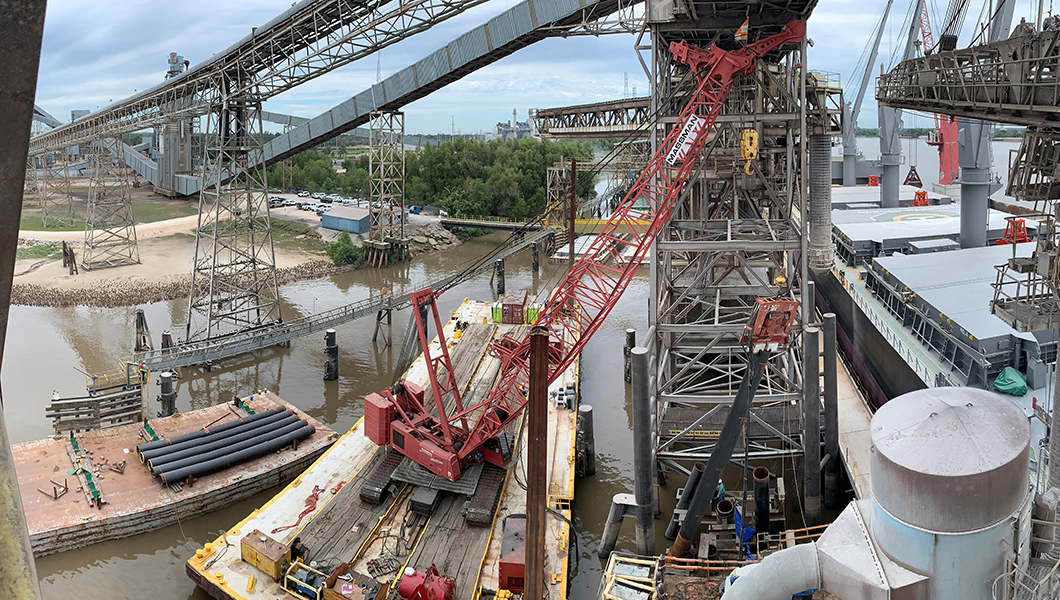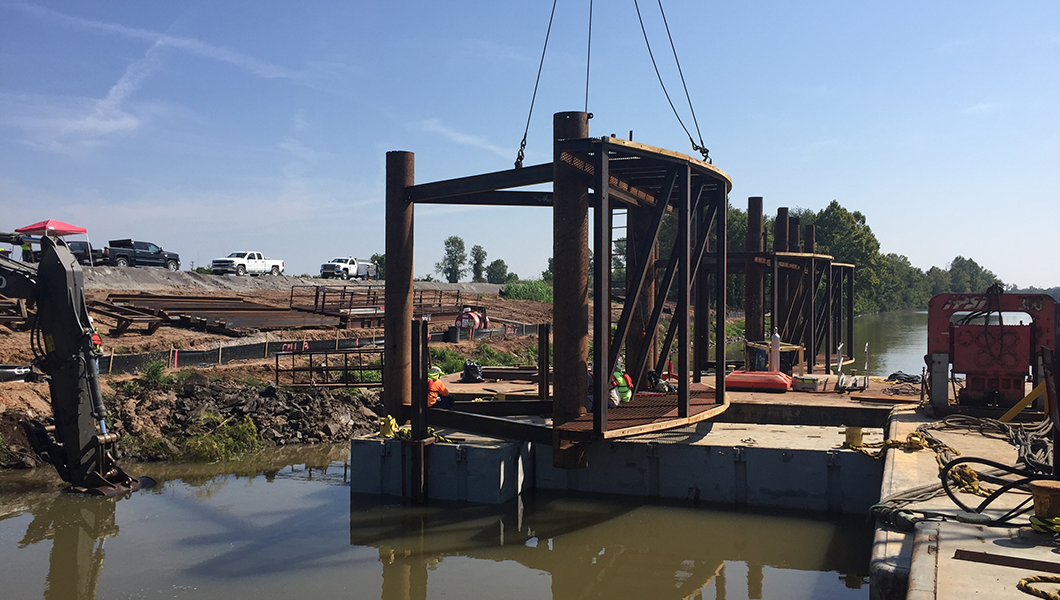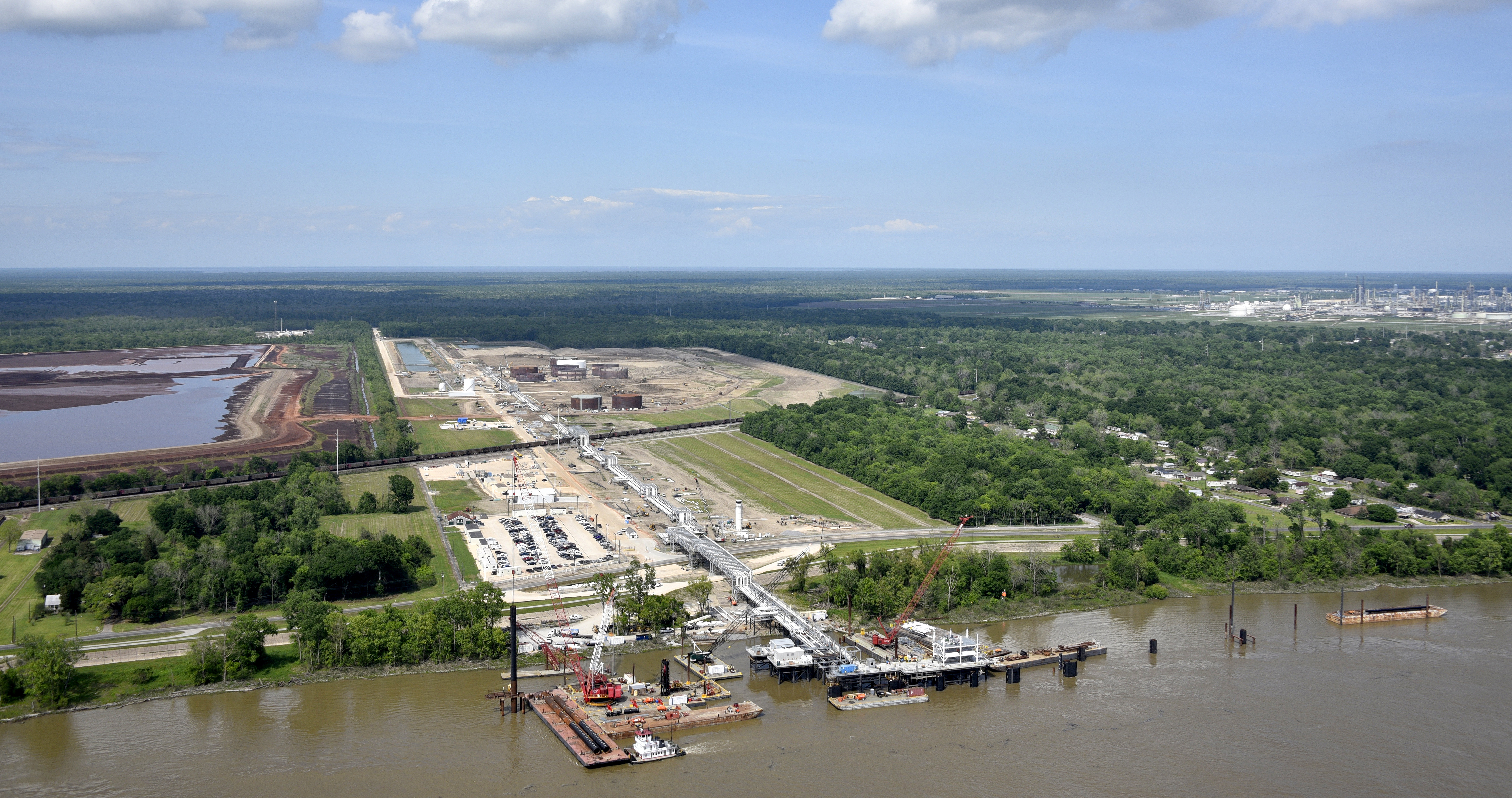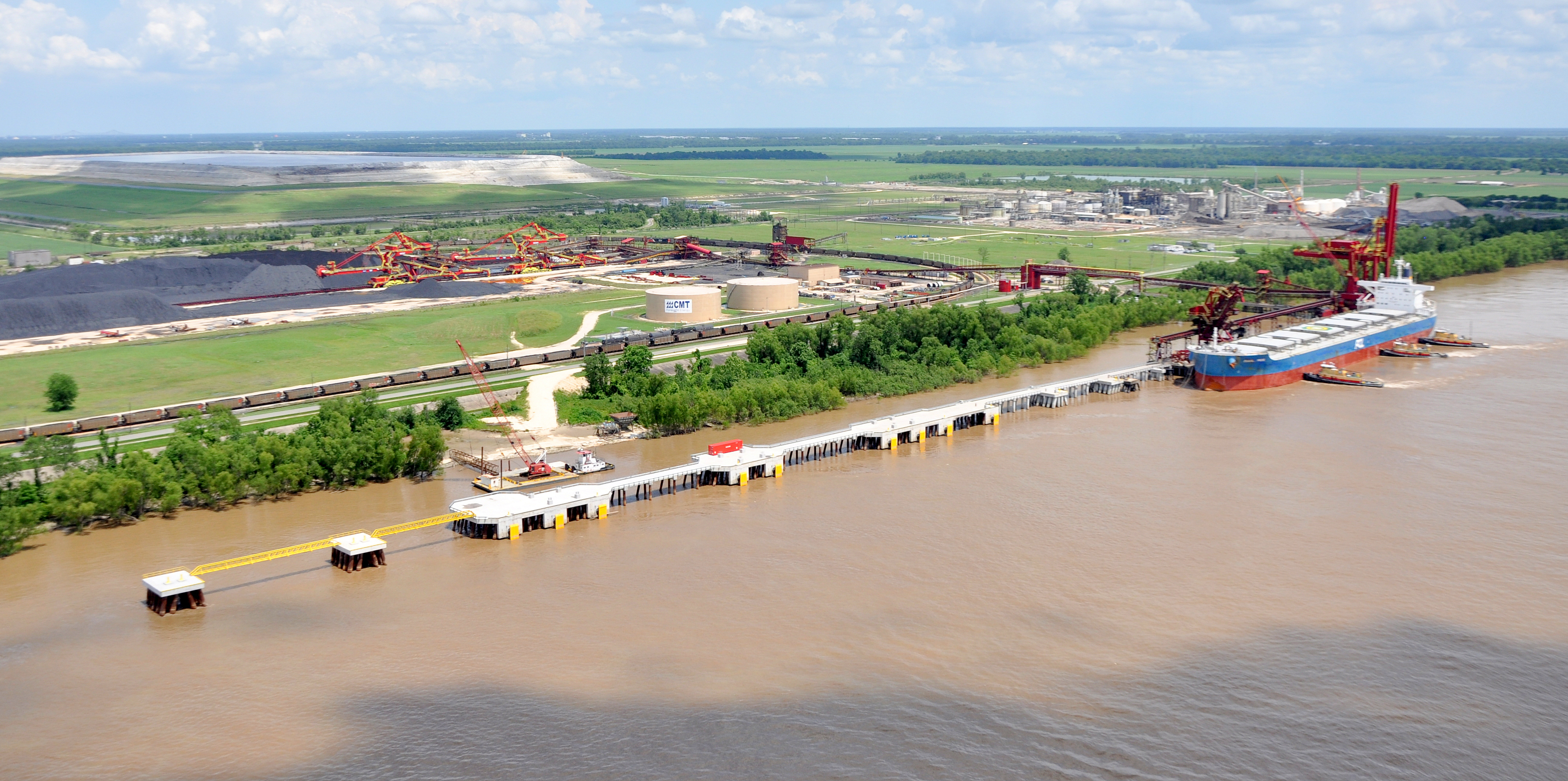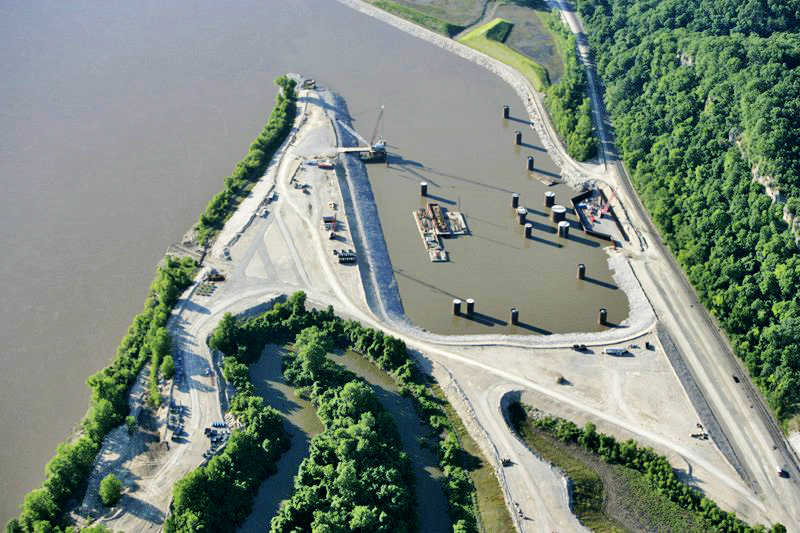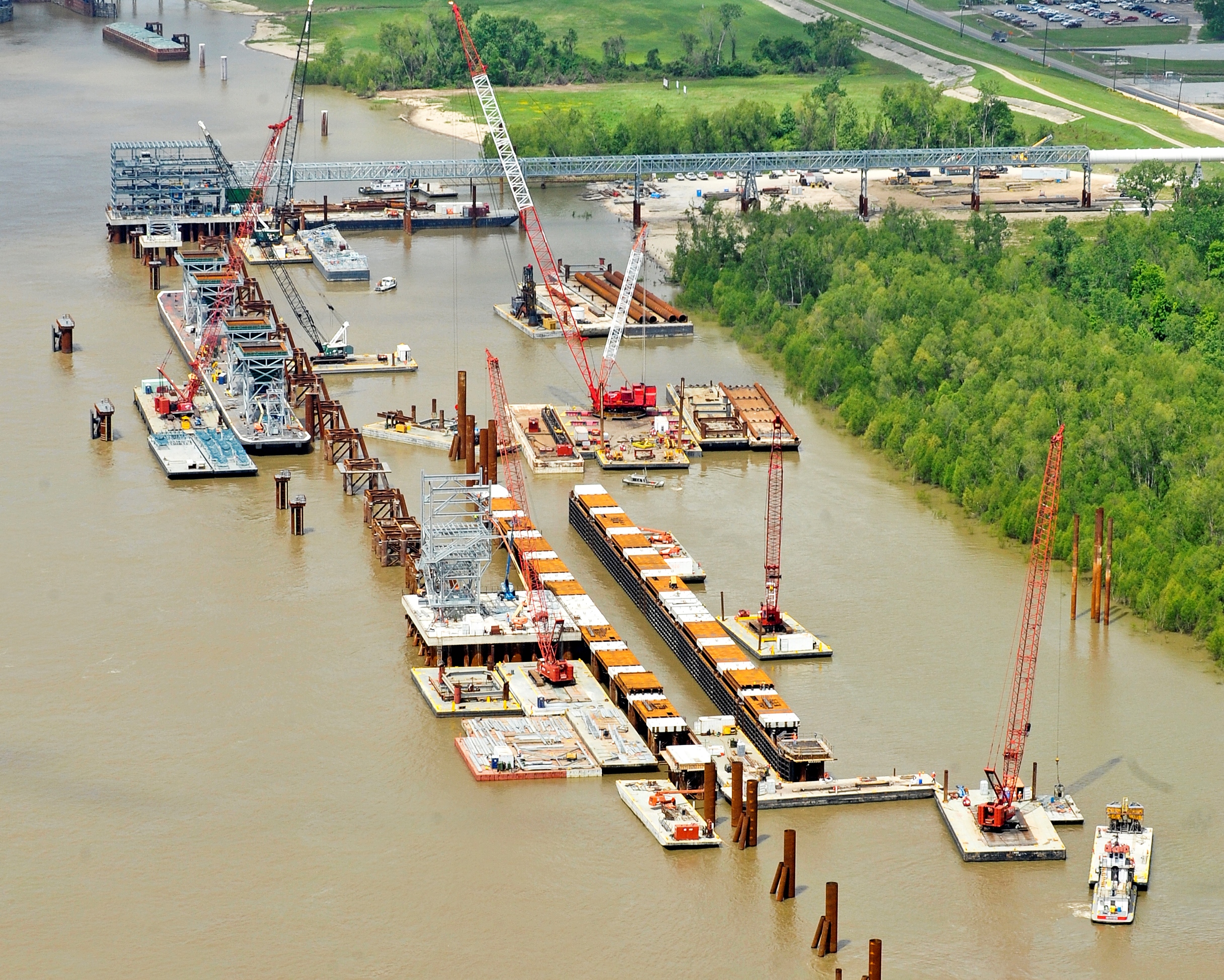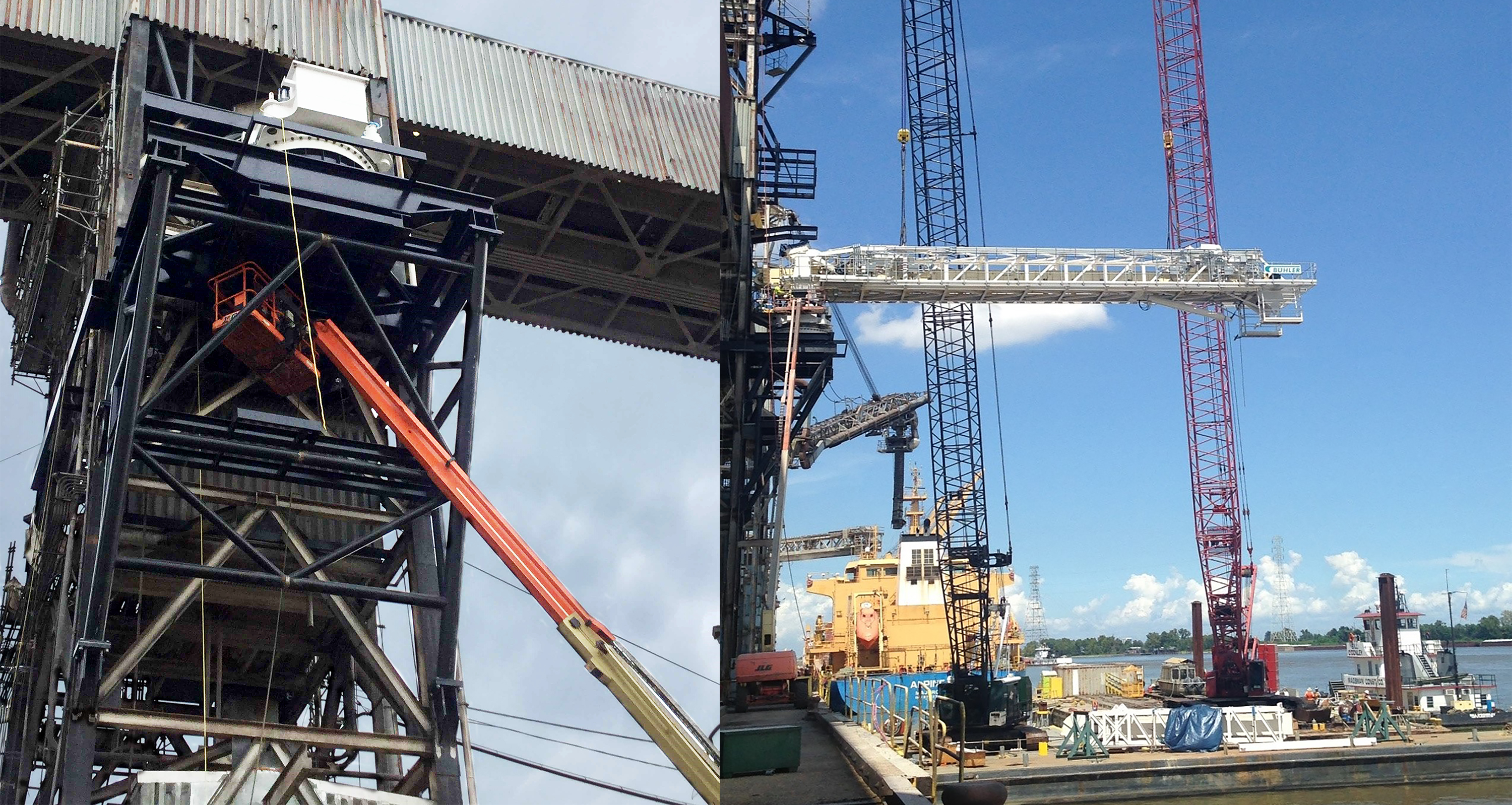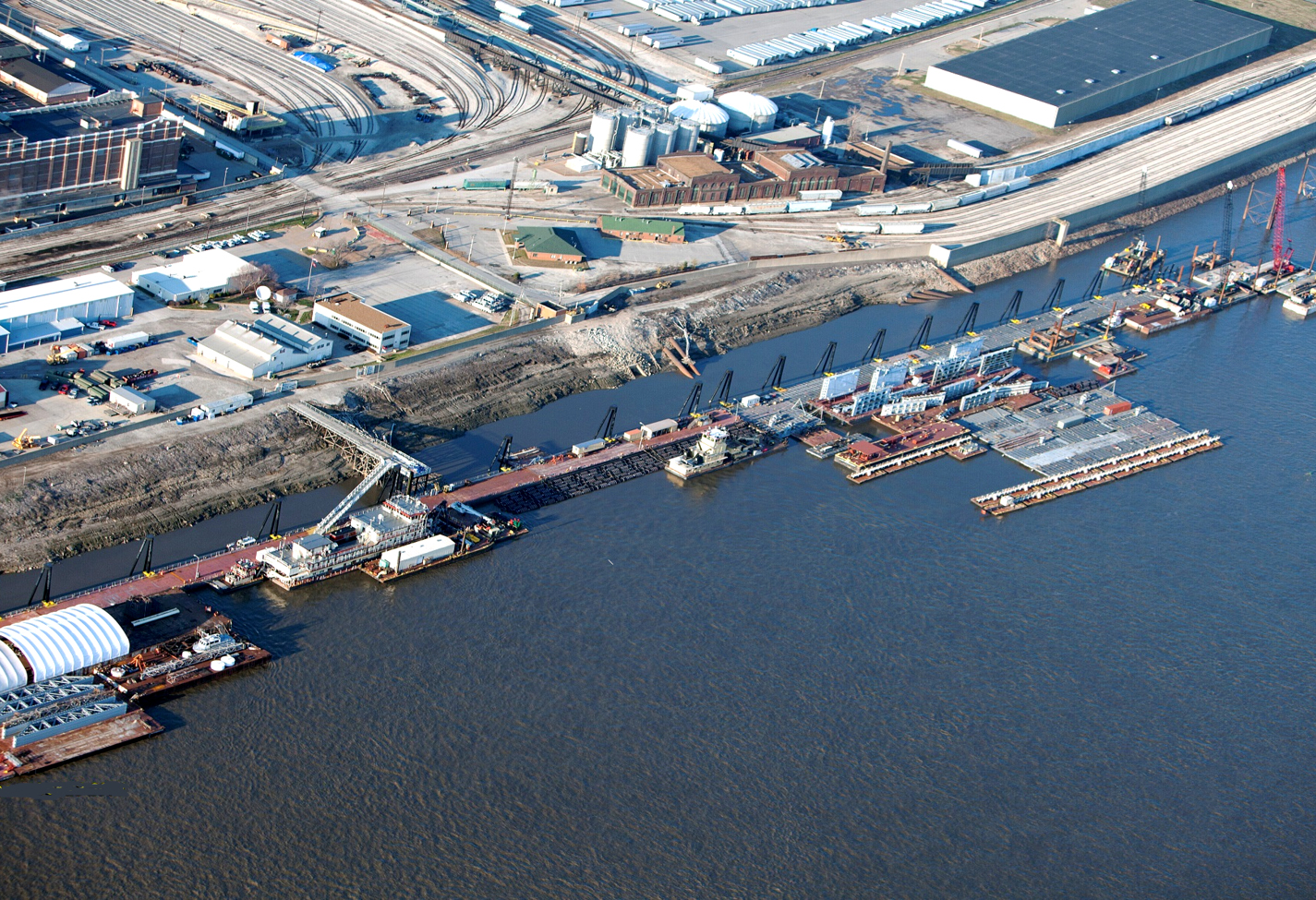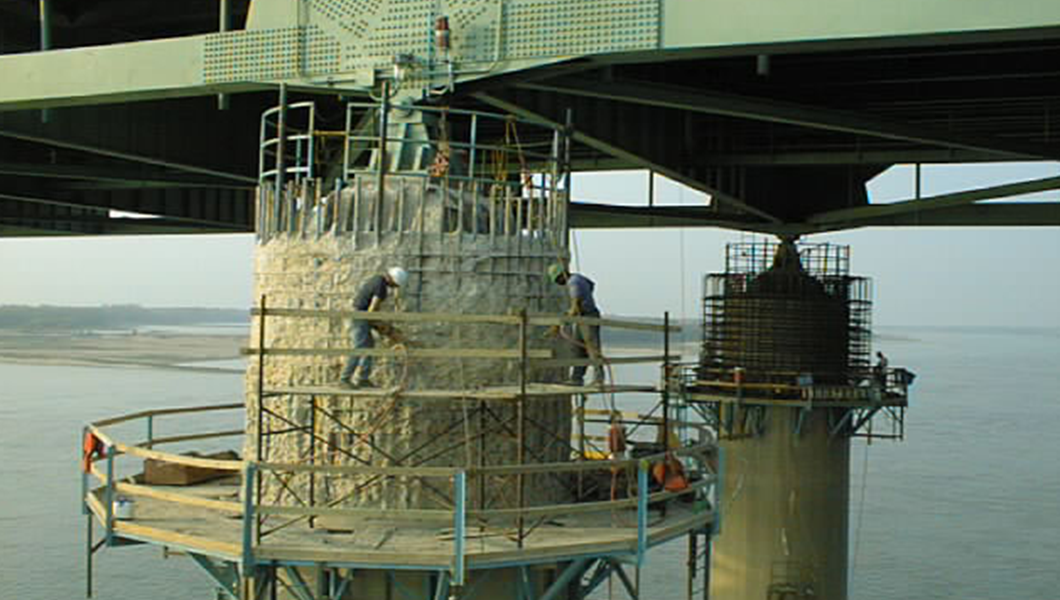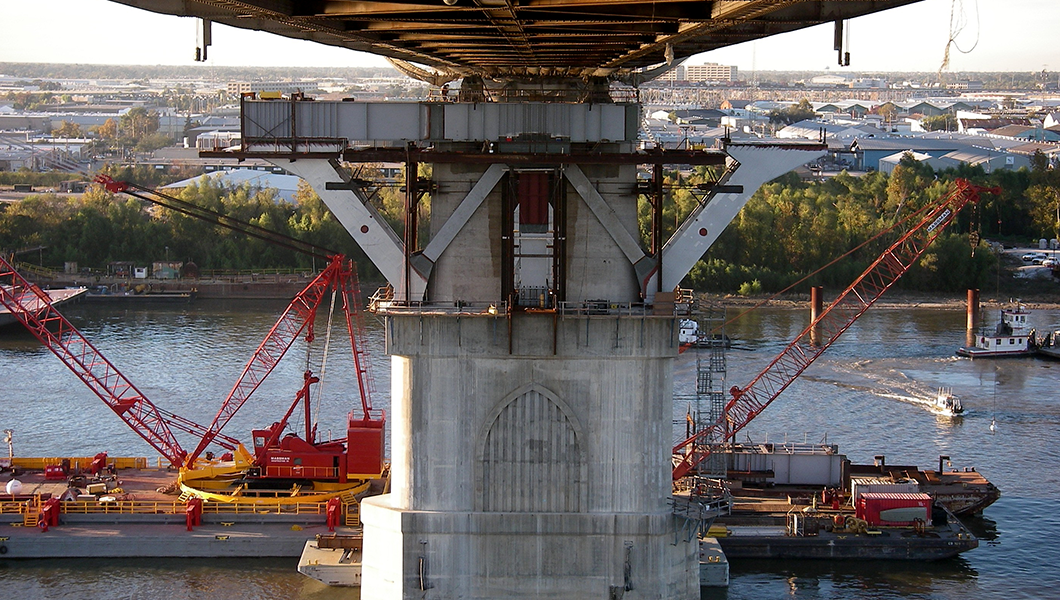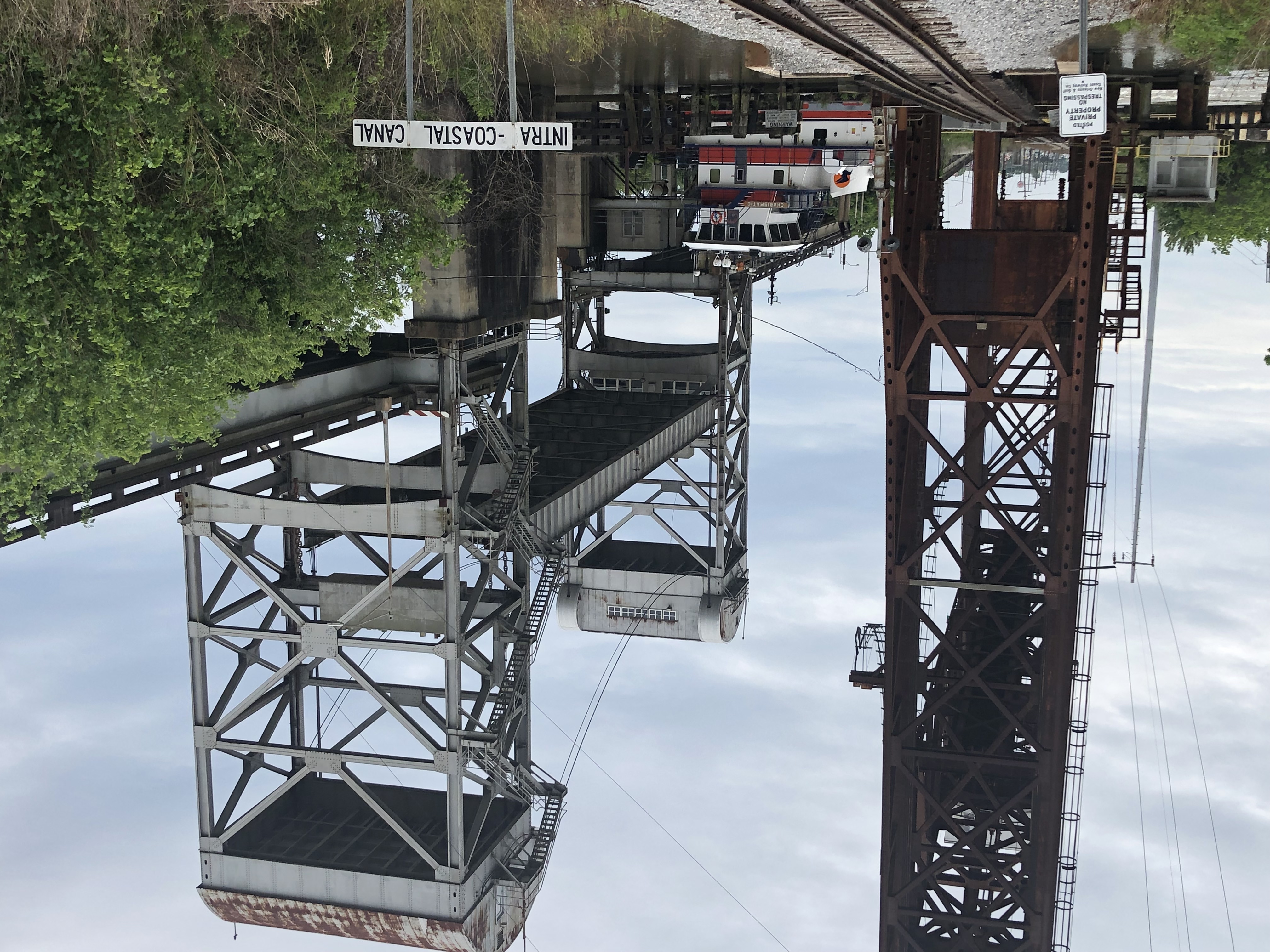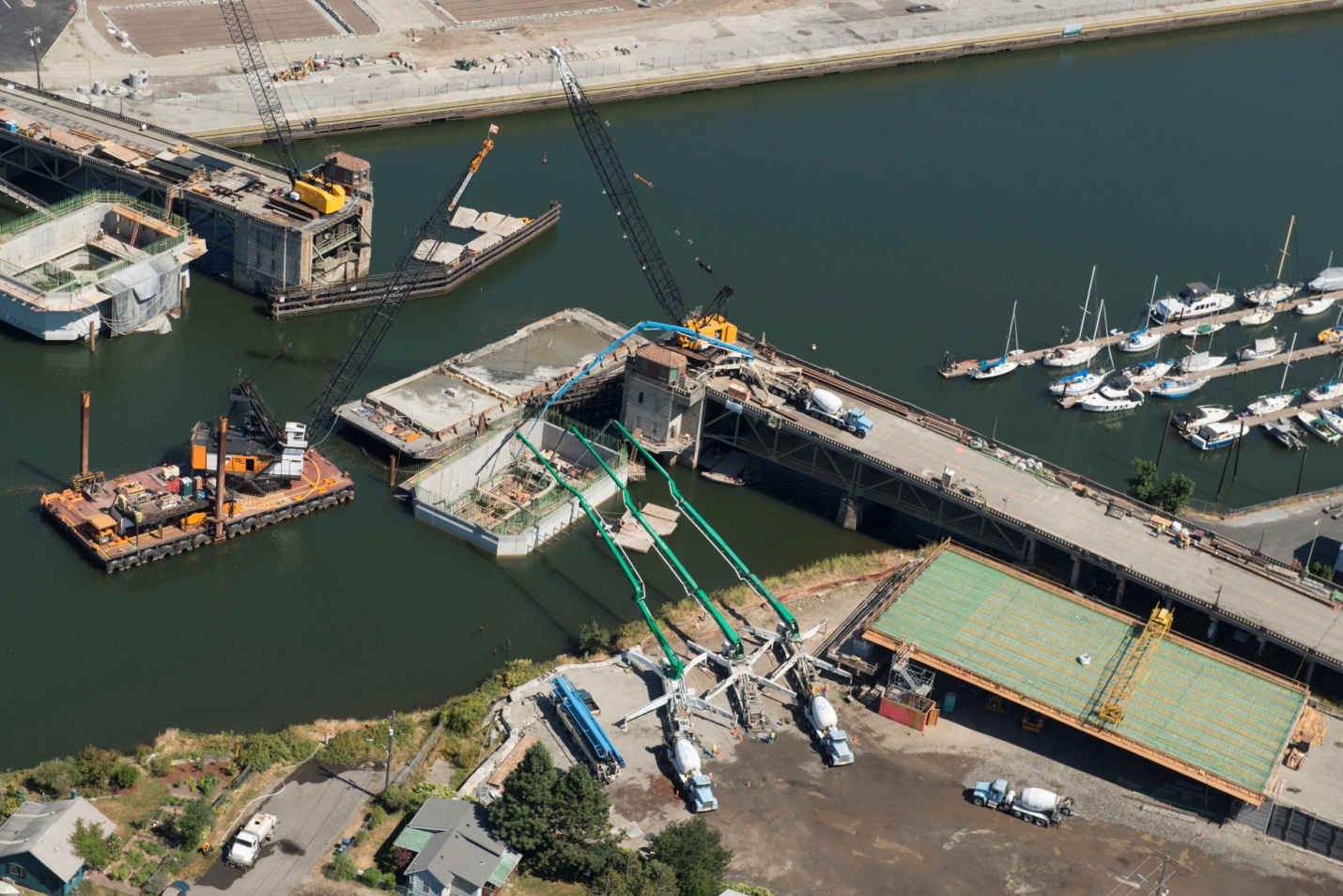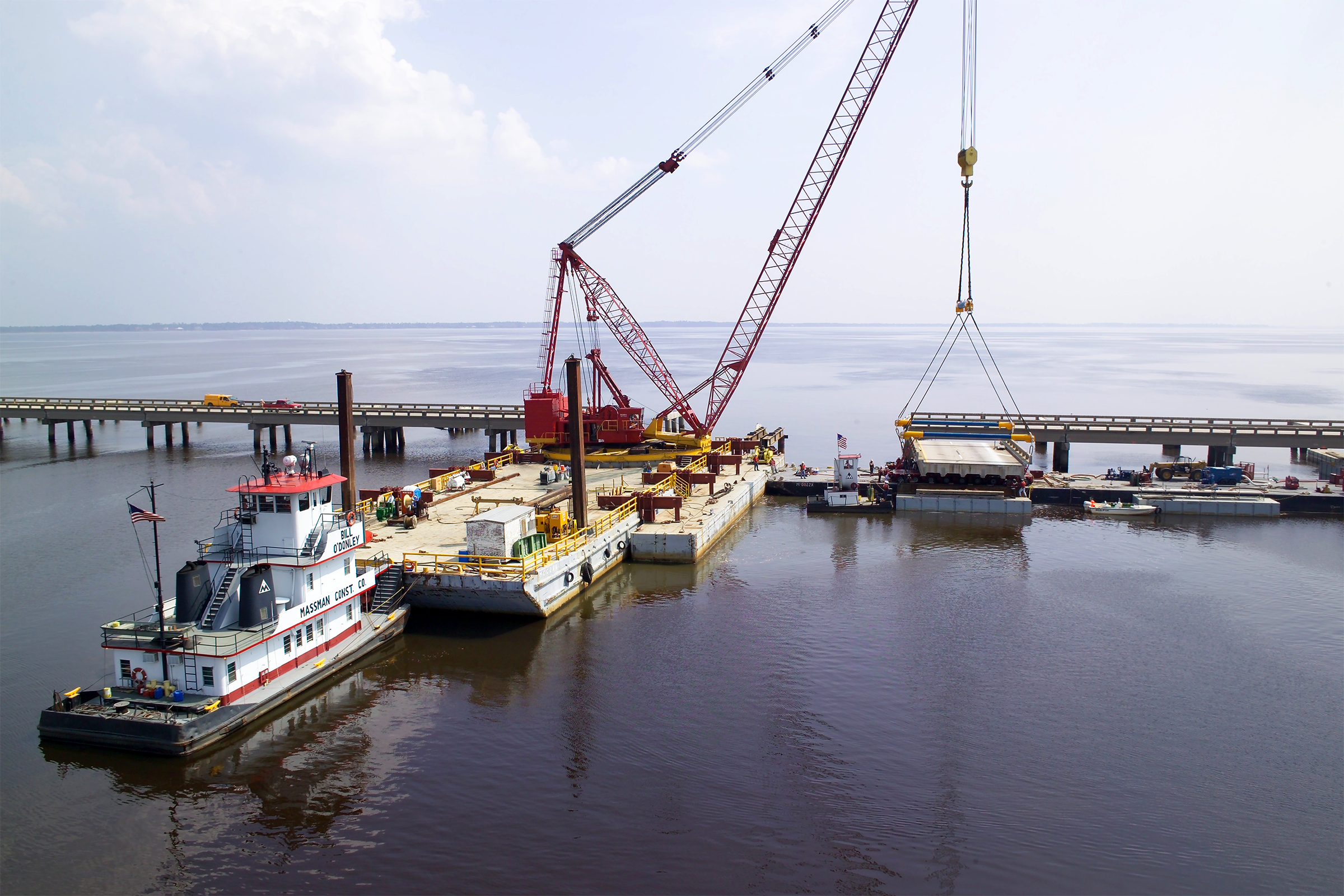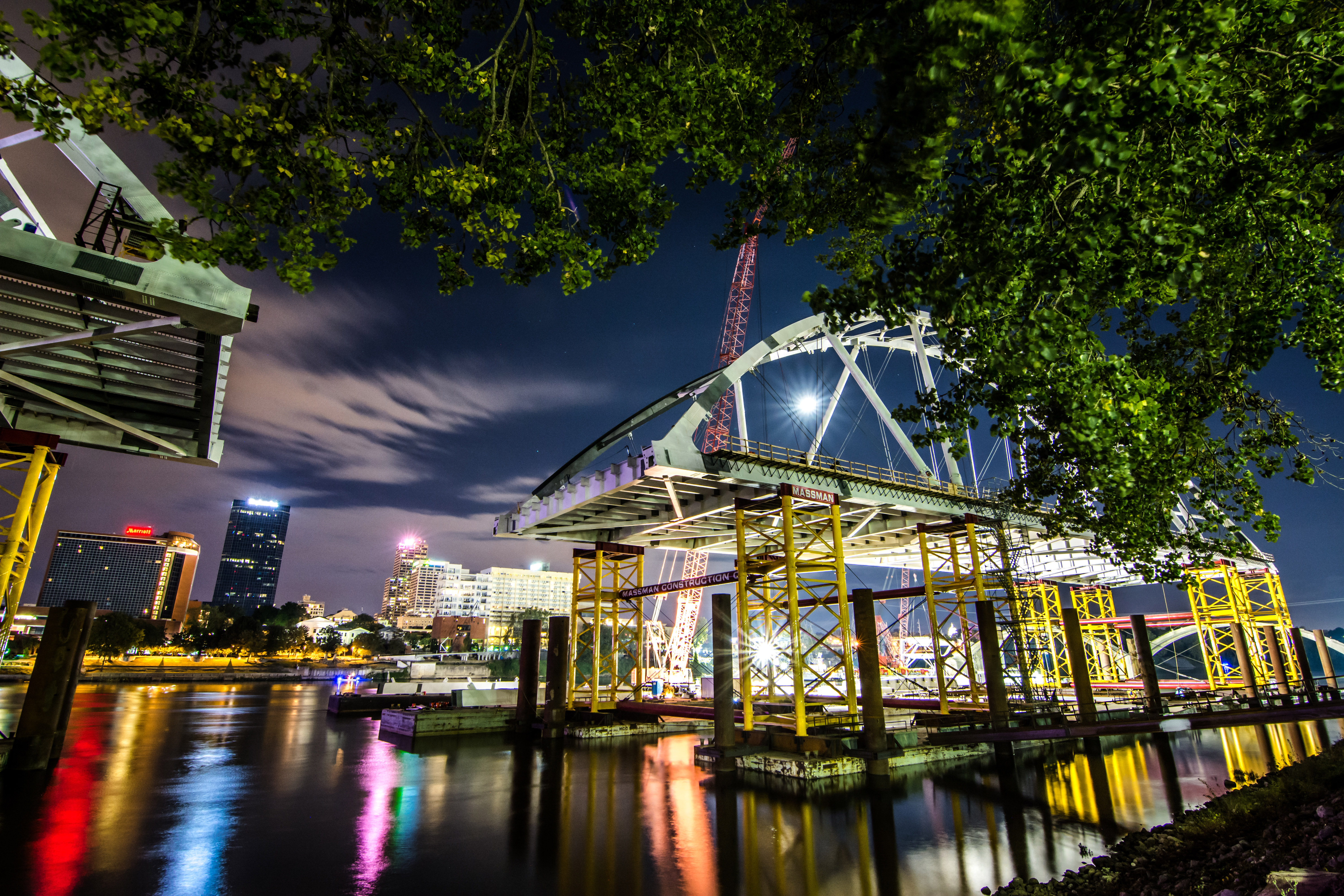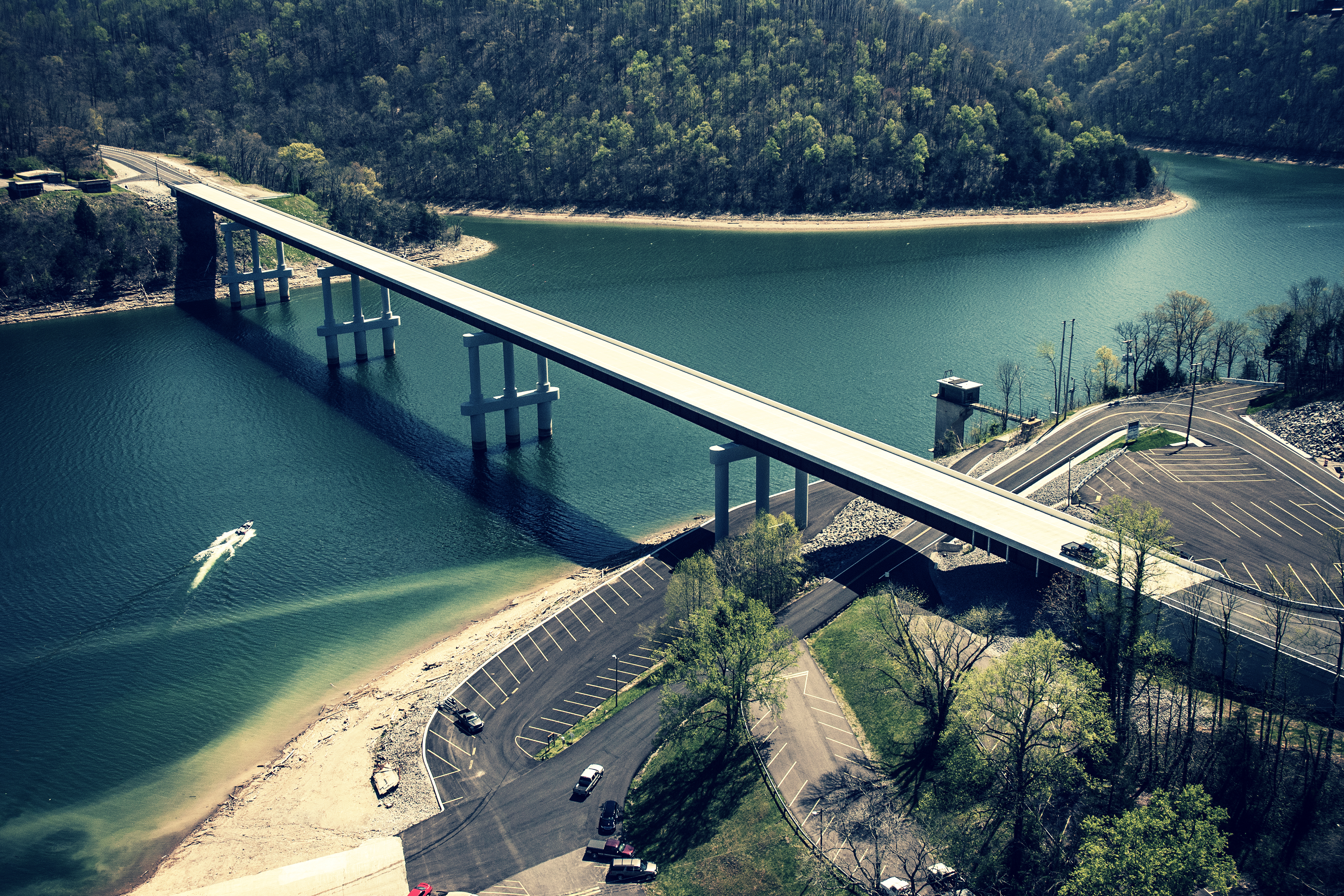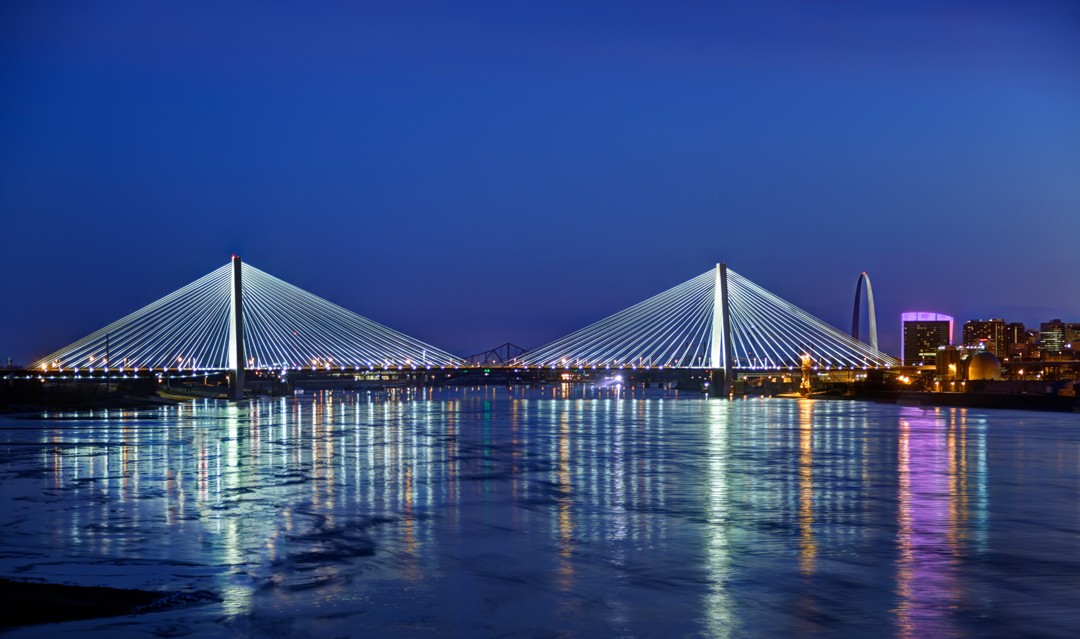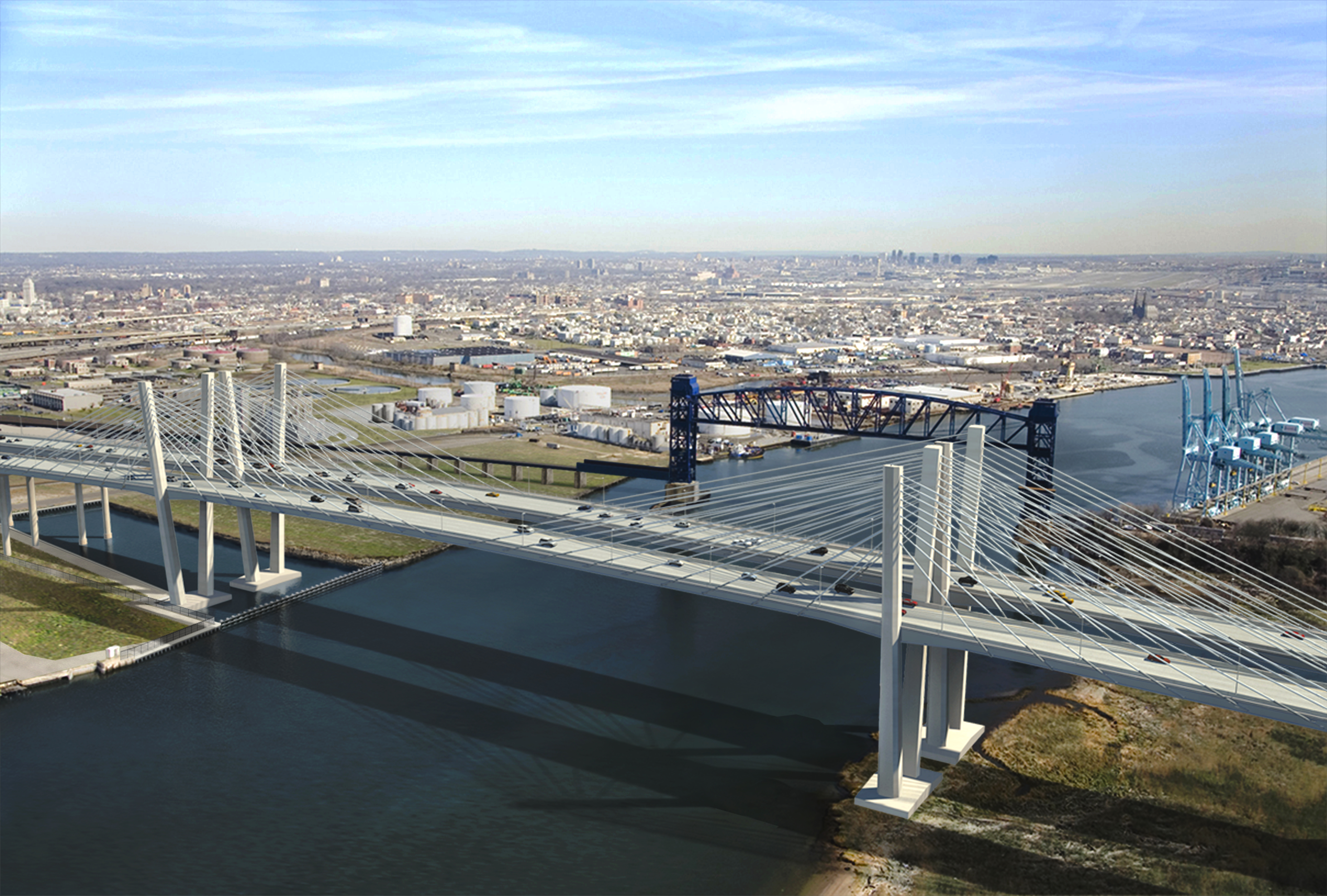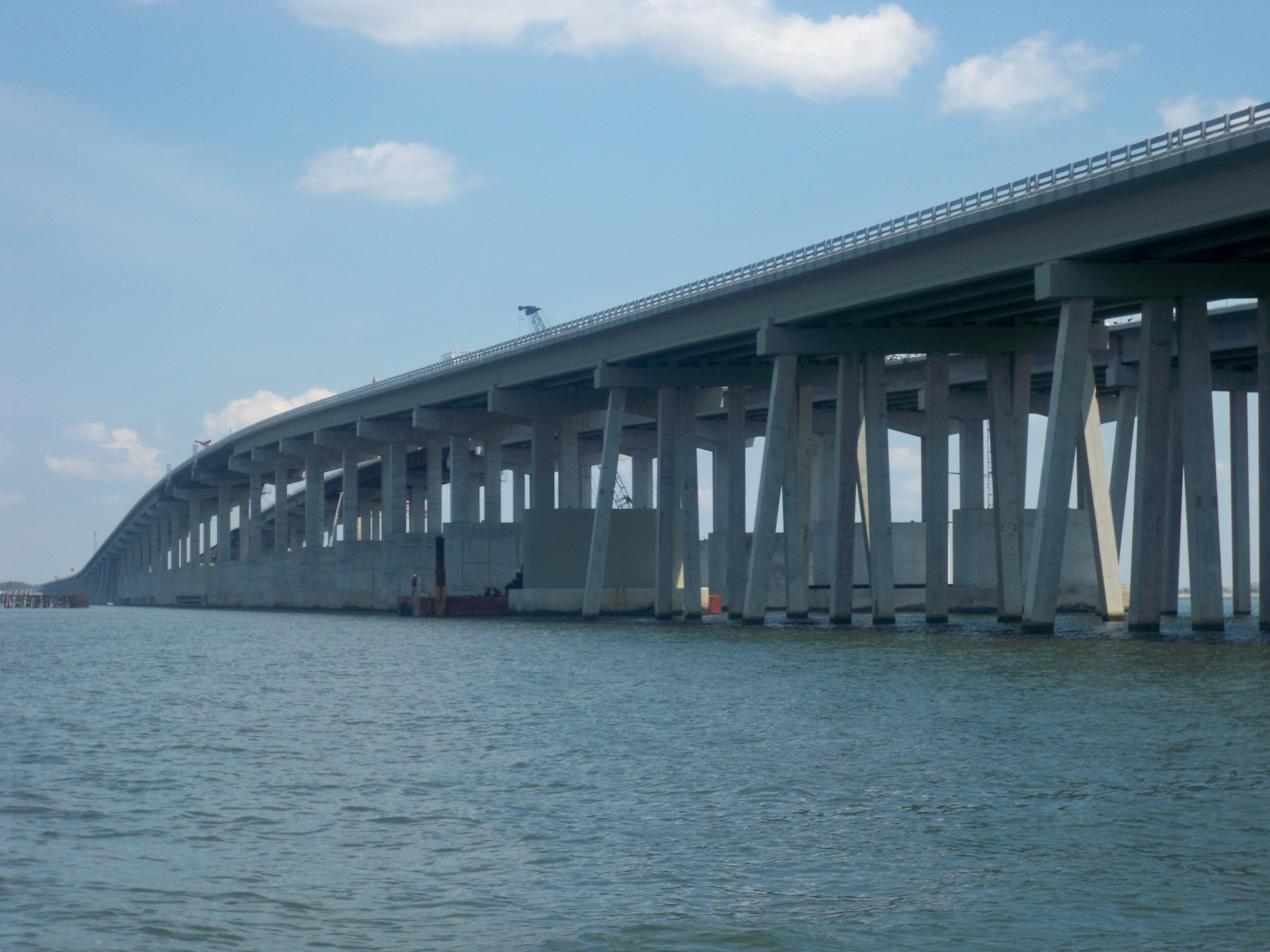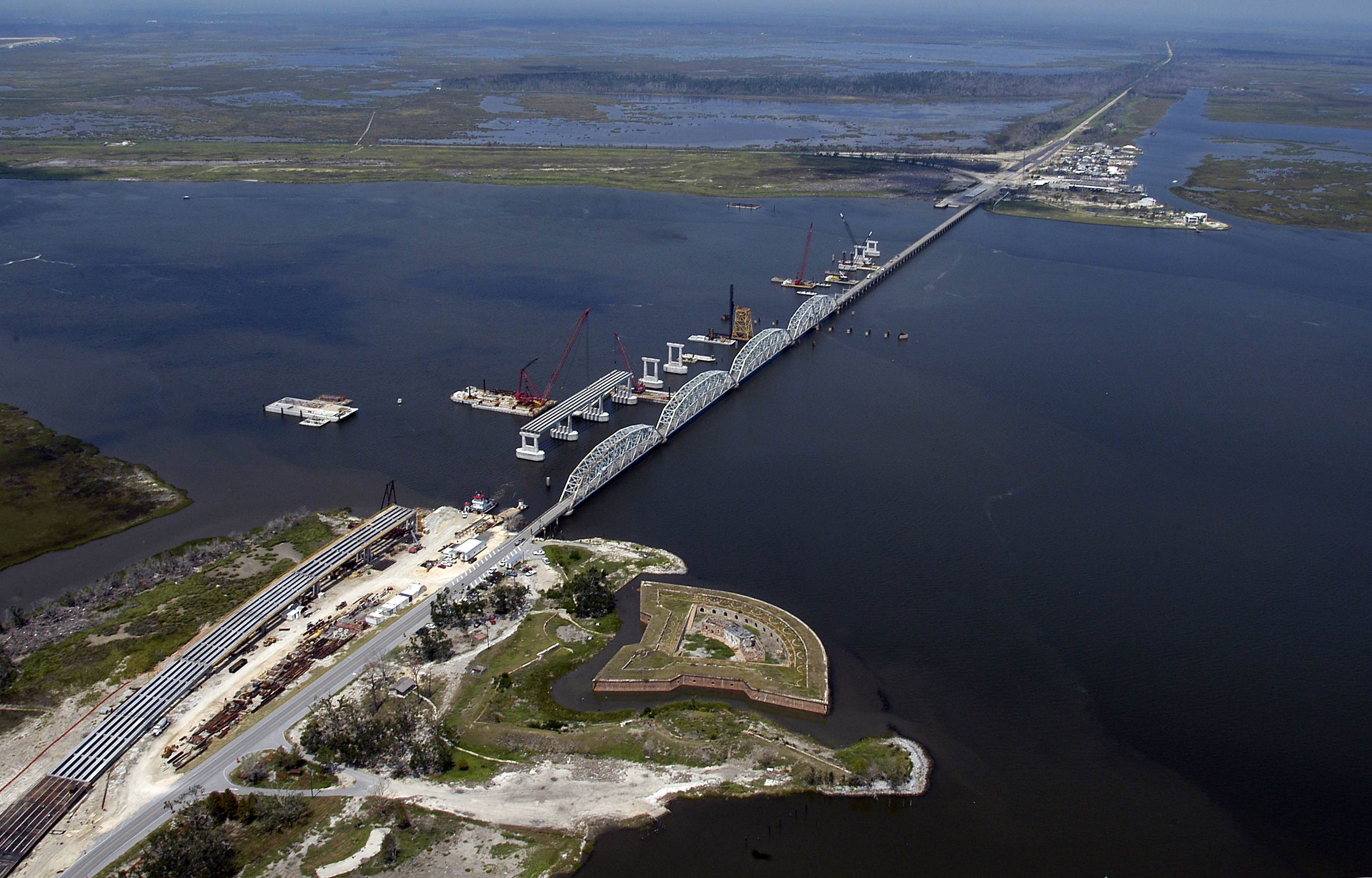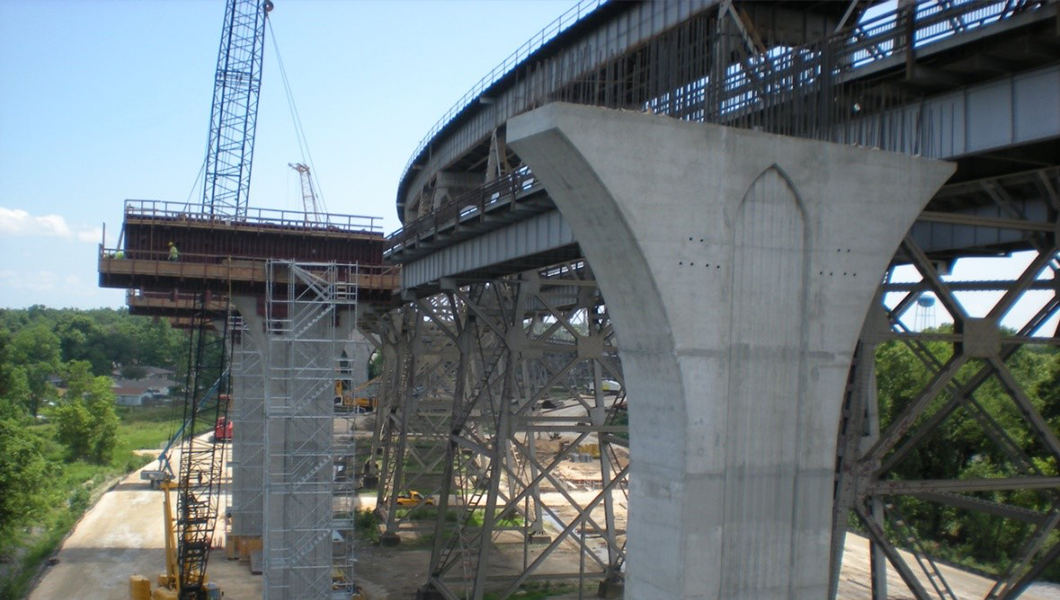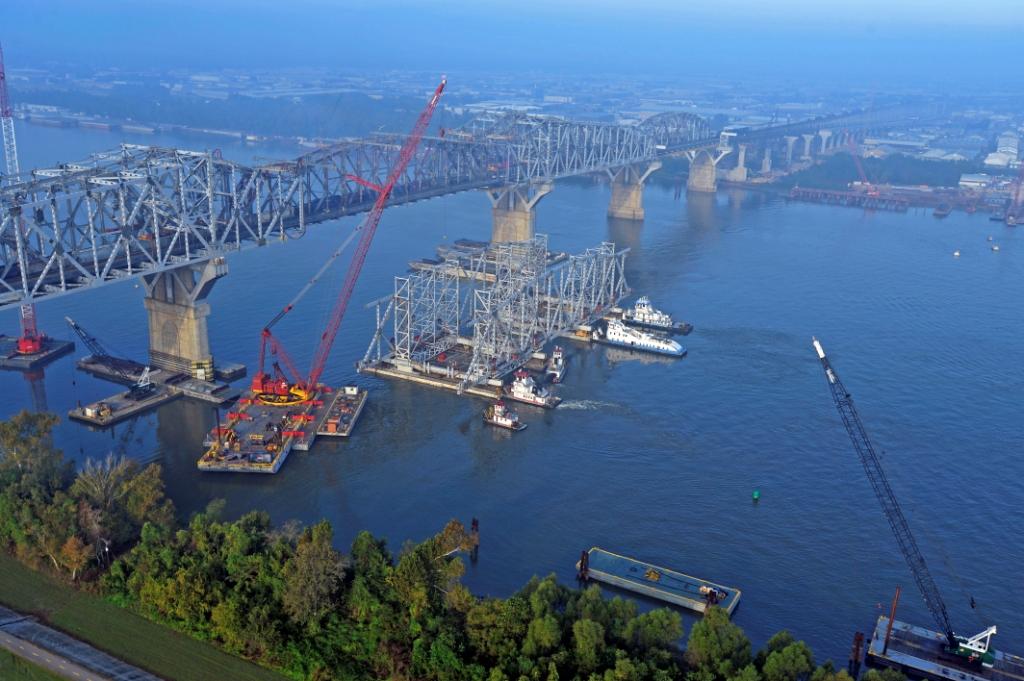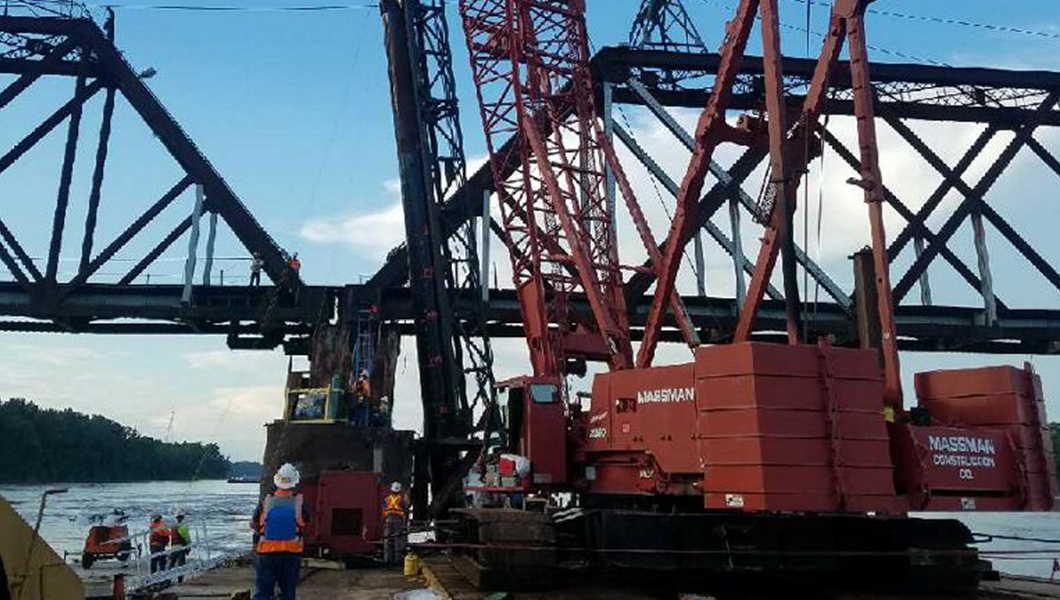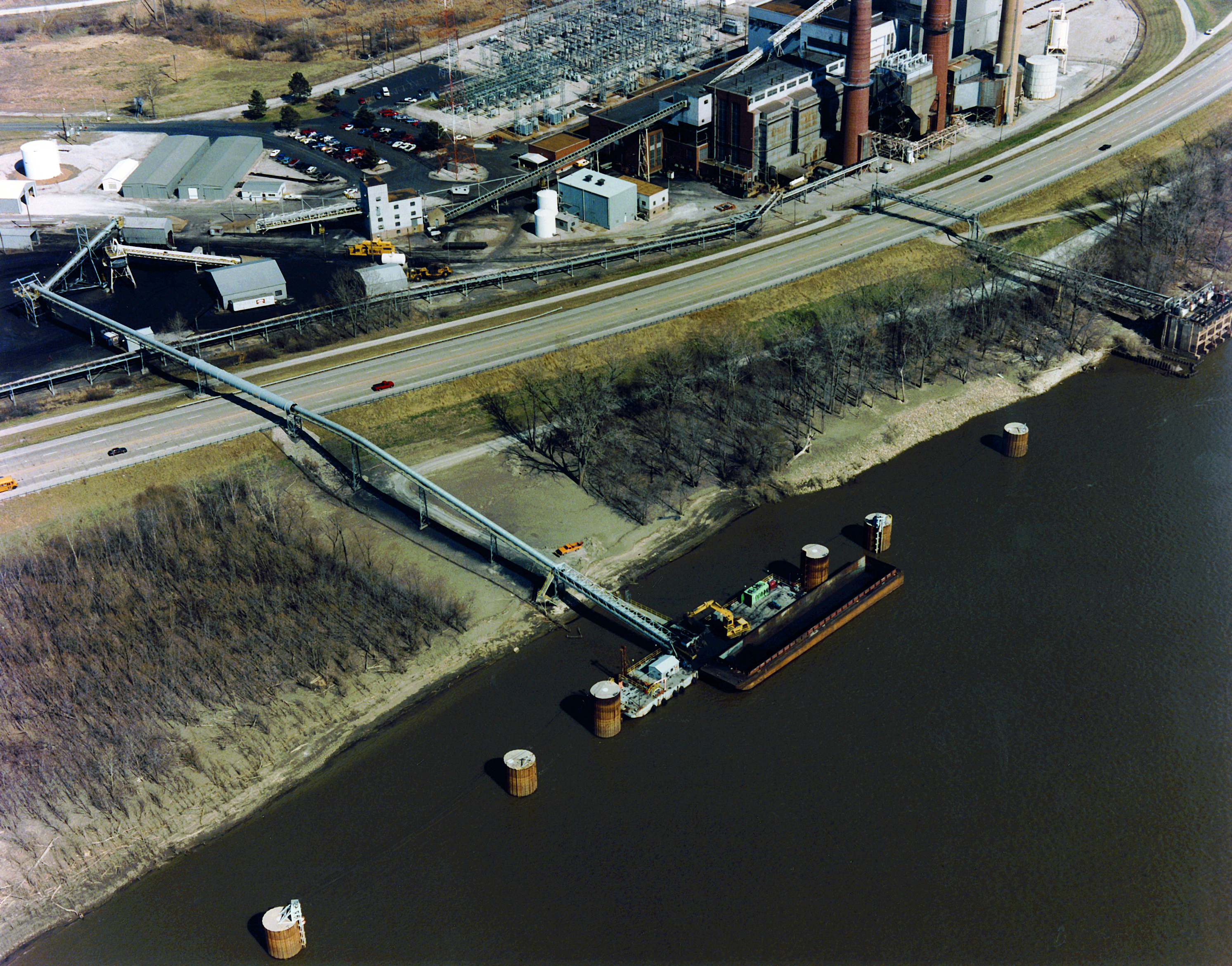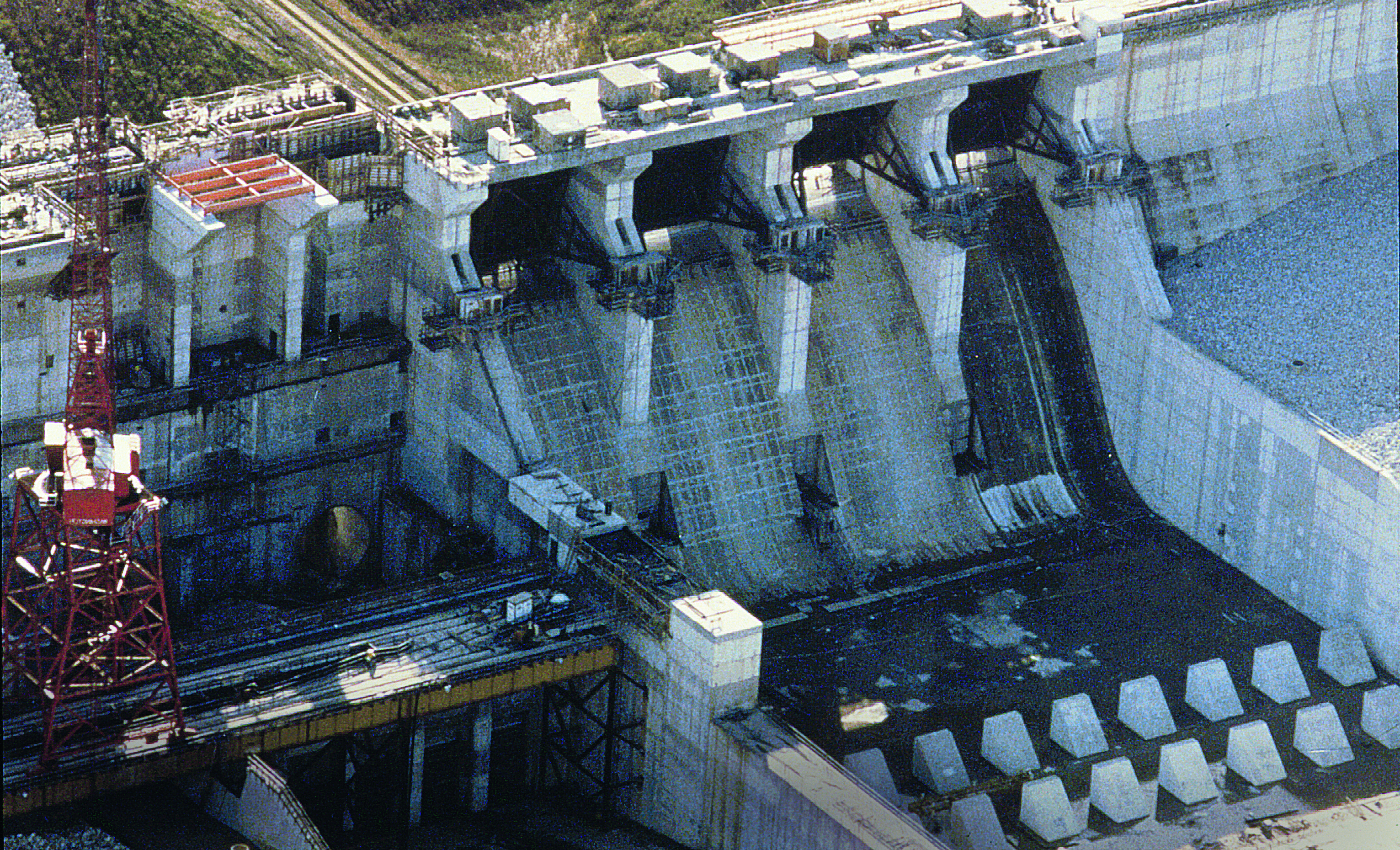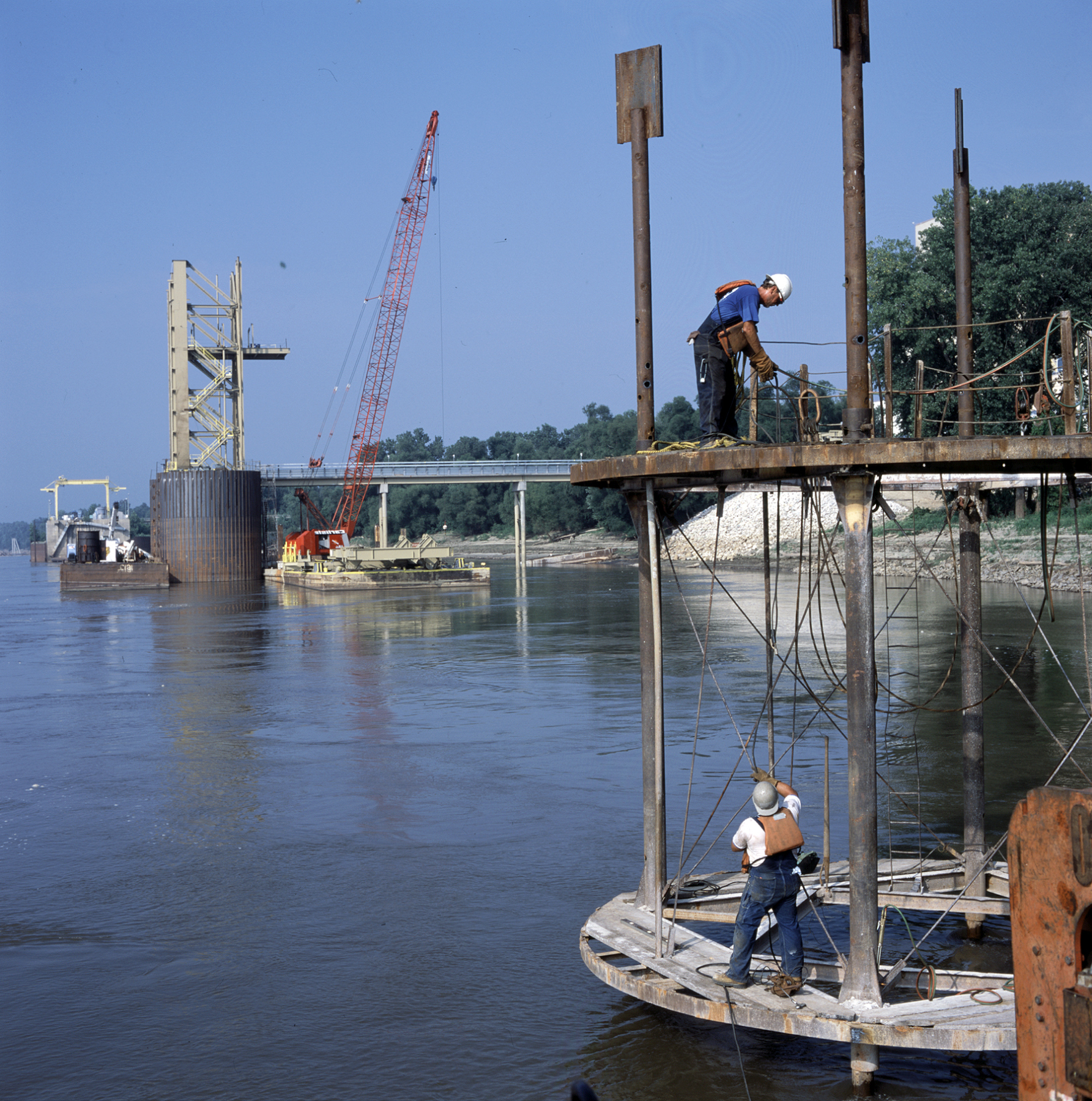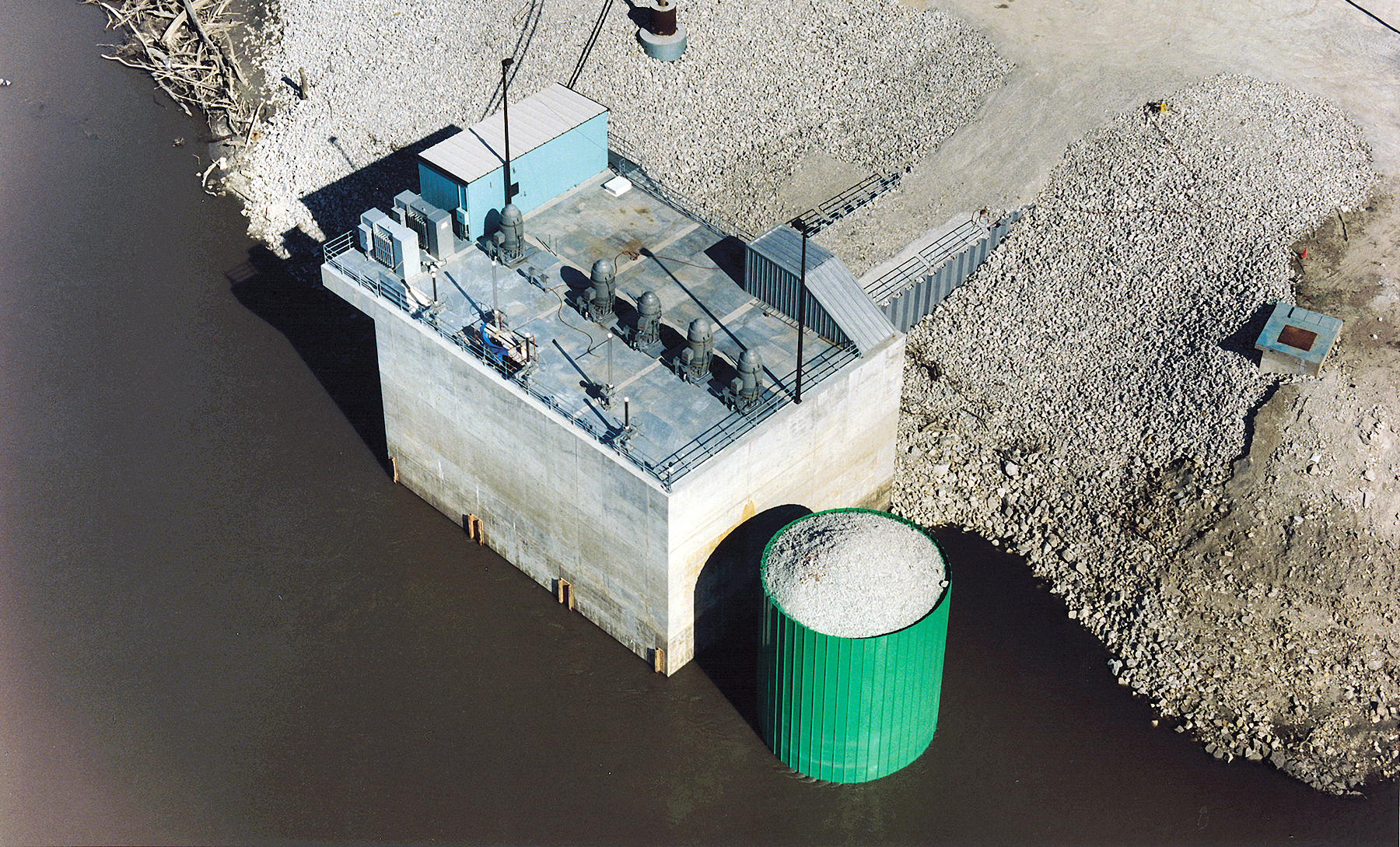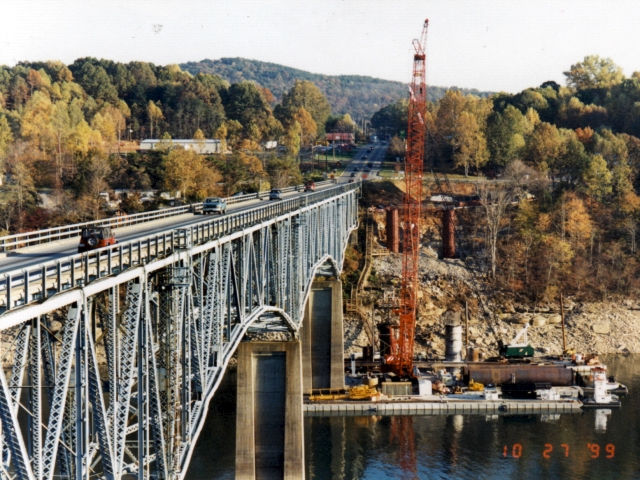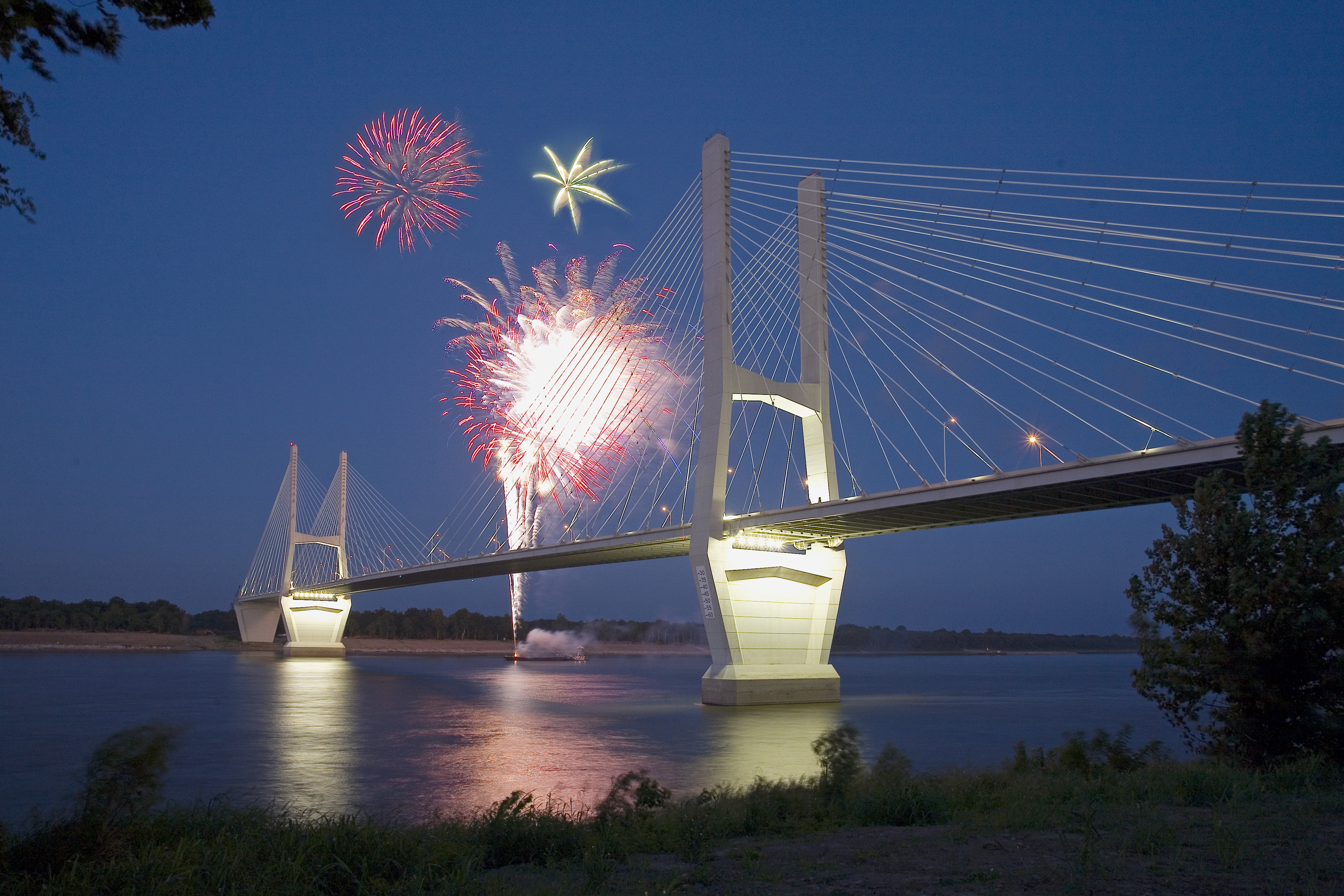Massman Construction Co. led a joint venture on this large project for the Missouri Highway and Transportation Commission. This project was the cable-stayed main span for the New Mississippi River Bridge at St. Louis. The bridge carries two lanes of Interstate 70 traffic each way between downtown St. Louis and the Metro-East.
The cable-stayed portion of the project consists of a 1,500 foot main span (the third longest in the U.S.) with two 636 foot end spans. Each of the two main (river) piers are founded on six 11-foot 6-inch diameter drilled shafts into bedrock. The two end (land) piers feature four 10-foot diameter shafts. The footings, pier shafts and the first two lifts of the tower concrete are solid and considered mass-concrete, subject to thermal control measures to prevent the concrete from cracking. Massman provided innovative alternative technical concepts for the project that resulted in significant cost saving by increasing the size and reducing the quantity of drilled shafts used for the bridge piers.
The thermal control consisted of running water through cooling pipes embedded in the concrete and insulating the forms and tops of each pour until the center of the concrete had cooled within the acceptable temperature difference limit with the outside surfaces. A concrete mix utilizing 70% blast furnace slag was used to minimize the heat of hydration of the concrete and minimize the duration of thermal control.


